SNAP HQ, a cor-ten steel shed at Snape Maltings, nerve centre of the SNAP visual arts programme for this year’s Aldeburgh Festival, directing our gaze towards the great Suffolk sky.
There’s lots of it, wherever you look, reeds and wind and music and sky. There’s water too, and we set off along the path beside the River Alde, thinking we’d walk to Iken and the church on the horizon.
The sun was hot as we walked through the reedbeds, the blades of grass whipping my legs was exhilarating, I even didn’t mind the nettle stings as there was a plentiful supply of dock leaves to squeeze on as an antidote. But when the path ran out it became clear we’d come the wrong way.
We backtracked and found a trio of sculptures by Barbara Hepworth, but my favourite was this fallen tree stump and its ivy exoskeleton, as if the tree had been cast in its mould and slipped from its grasp.
Our route was guarded by a proud dray horse (Suffolk Punch?) and its cart load of giant monkey nuts or marrows or barley sacks. Is it a misplaced mantelpiece ornament or a wayside folk art monument?
Then further out on Iken marsh there’s a charcoal tree drawing the sky, in homage to Piet Mondrian.
The shiver and rattle of leaves in the wind is the familiar sound of poplar music.
The song that spins and spills out of the blue screen sky is oystercatcher music.
Iken church tower is still visible on the horizon but it doesn’t appear to get any bigger, even as we approach along Iken cliff it doesn’t seem to get any closer. It stands like a pivot for the rotating sky.
From the edge of the waving tousled grasses comes the hysterical sound of redshank music.
Down along the shore an oystercatcher returns to ground and brings to life a print by Bea Forshall.
Bea’s work is included in the exhibition Ghosts of Gone Birds further downriver at Aldeburgh.
At Iken the light of the sky is harvested for the roses.
At Iken church we reach our goal and turnaround in a circle dance for St Botolph.
We return along the shore via the reconstructed Anglo-Saxon St Botolph’s cross.
The reason Suffolk people feel so close to the sea is perhaps because to travel the landscape itself is to be at sea, navigating by a row of flint church towers, or encountering a tractor, trawling its plough across a sea of furrows with a flock of seagulls in its wake. The skies are always beautiful.
Roger Deakin: Notes from Walnut Tree Farm
Back at Snape Maltings we find an exhibition of The Sky painted by Jelly Green.
The sky is a celestial eye, its iris composed of iridescent brushstrokes of windswept clouds, these little paintings are its mirrors. Everyday abstract spectacles of light and mood. I’m reminded of an earlier visit to Flatford when we found a collection of quotes by John Constable in East Bergholt church –
That landscape painter who does not make his skies a very material part of his composition, neglects to avail himself of one of his greatest aids.
It will be difficult to name a class of landscape in which the sky is not the key note, the standard of scale, and the chief organ of sentiment.
Downstairs we found a more familiar Jelly Green painting, Presteigne Cow 1.
And outside there was a prepared piano by Jelly’s sister, Lily Hunter Green, buzzing with music.
This piano was a receiver for transmissions sent from a more secretive piano hidden nearby.
Bee Composed was a beehive inside a piano, an acoustic environment that inspired music for piano & bees. Learn more at SNAP and at Lily Hunter Green’s own website and at her page on SoundCloud.
(And since we’re on the subject, here’s my own 20 year old Beehive, made from strips of wood veneer, inscribed with Mbuti inspired marks and inlayed with chequers of crayoned paper, but alas no music.)
Then just as we were leaving I took a final photo of Henry Moore’s sculpture, Large Interior Form, and only later realised that I’d inadvertently snapped Jelly’s sister on her way to tend her piano hive. She scowls at me like I’m a paparazzo! Sorry Lily.
See more by Jelly Green at The Rowley Gallery.
※
We’d originally intended to follow Christopher Somerville’s suggested walk, but we ran out of time and only managed the first leg, as far as St Botolph’s church at Iken.
Walk the walk – Snape Maltings & Iken, Suffolk.
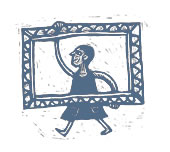

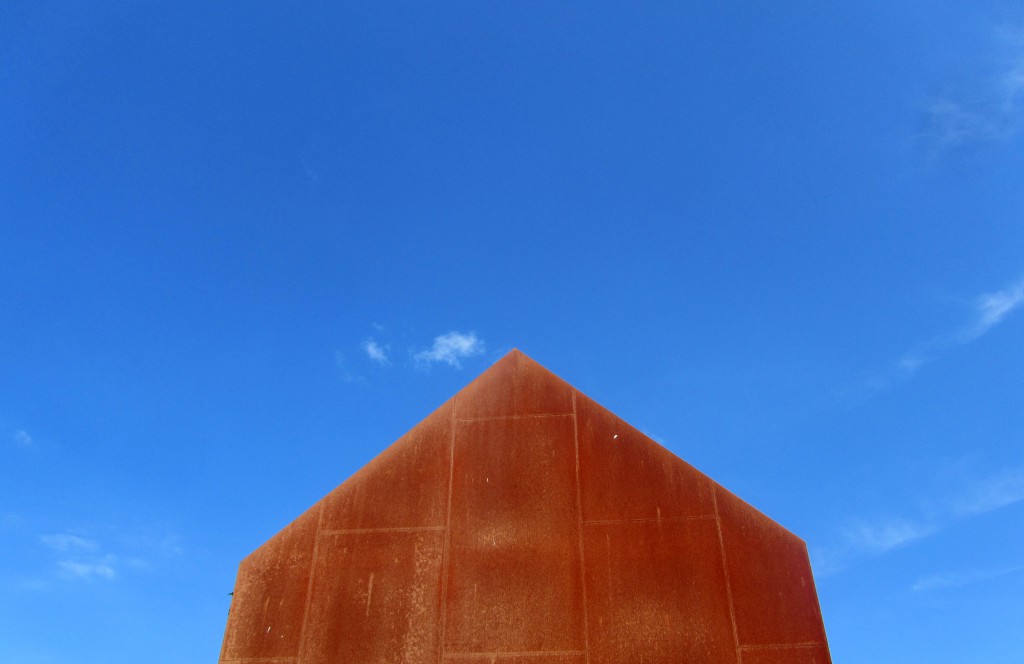
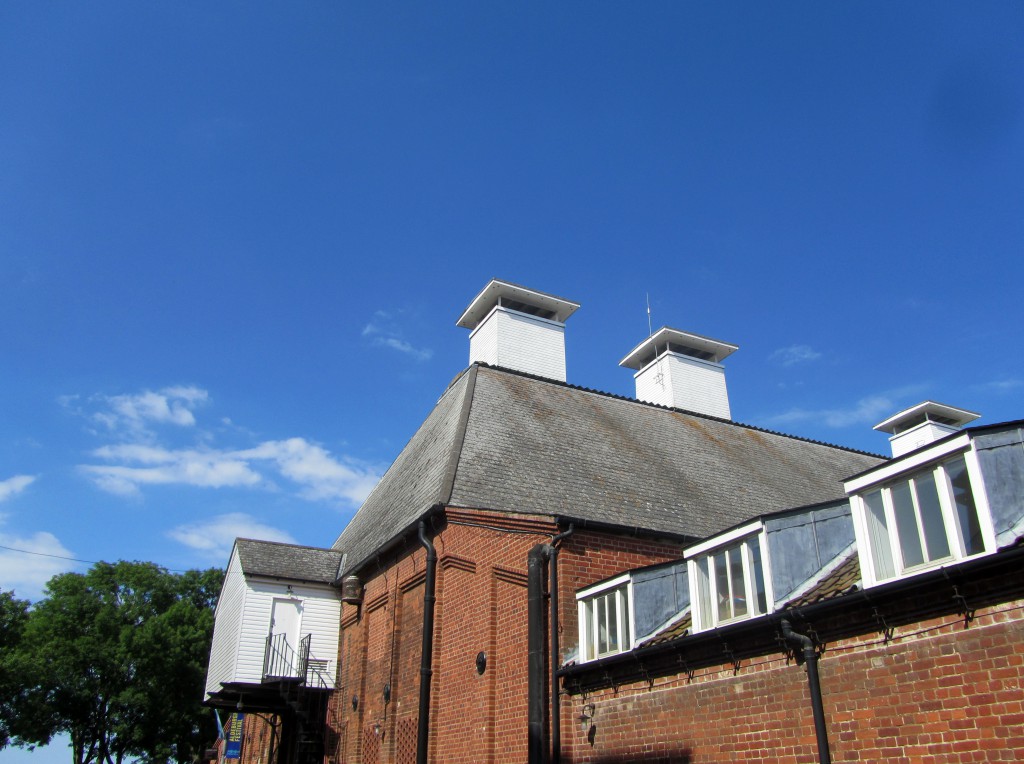
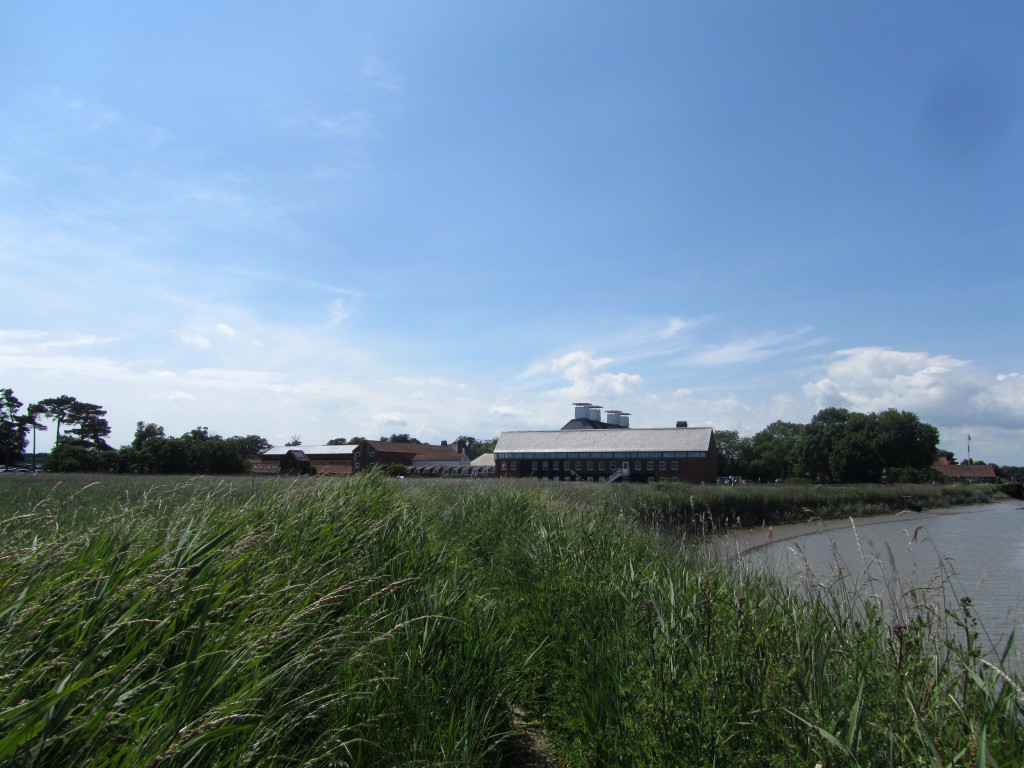
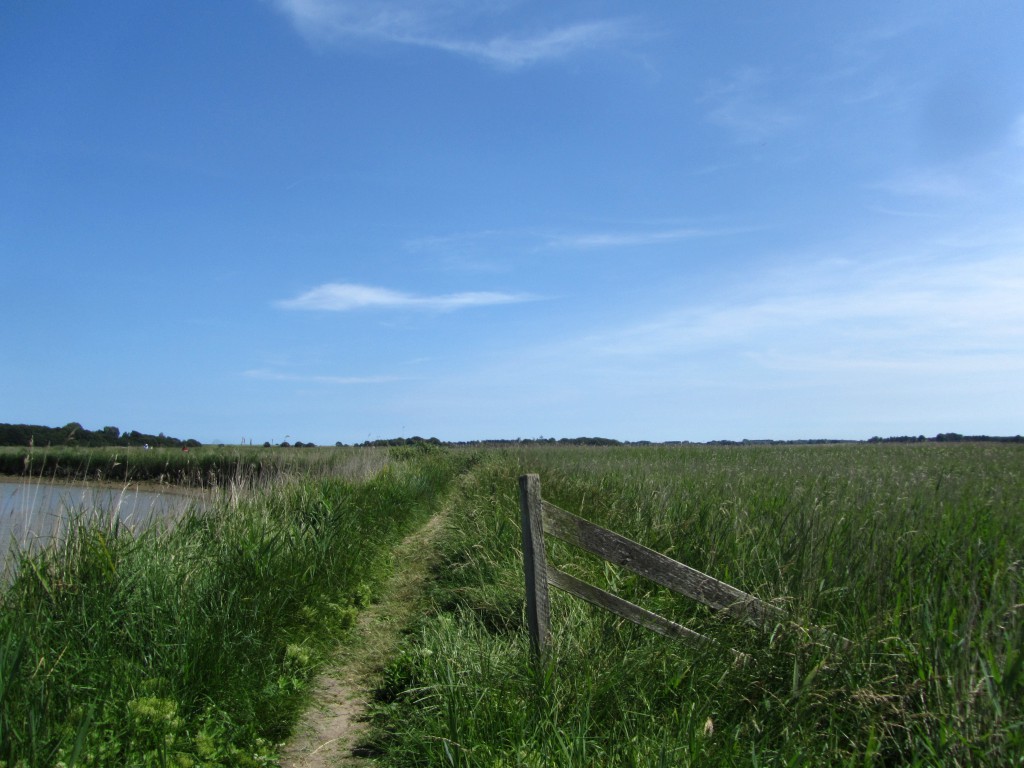
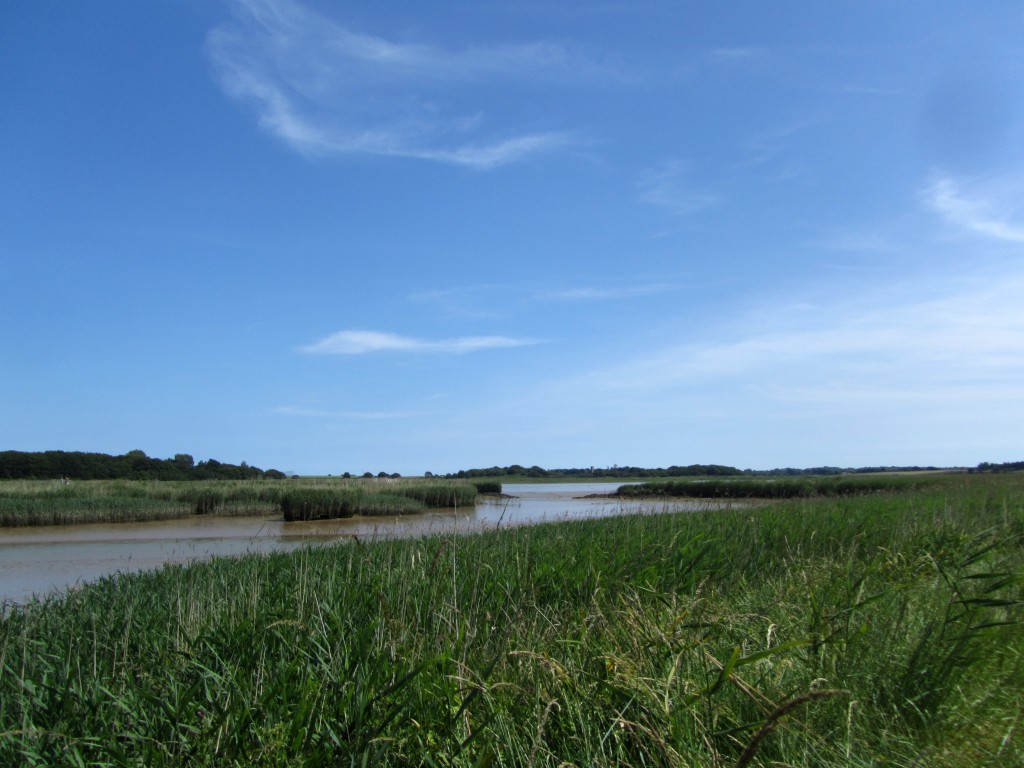
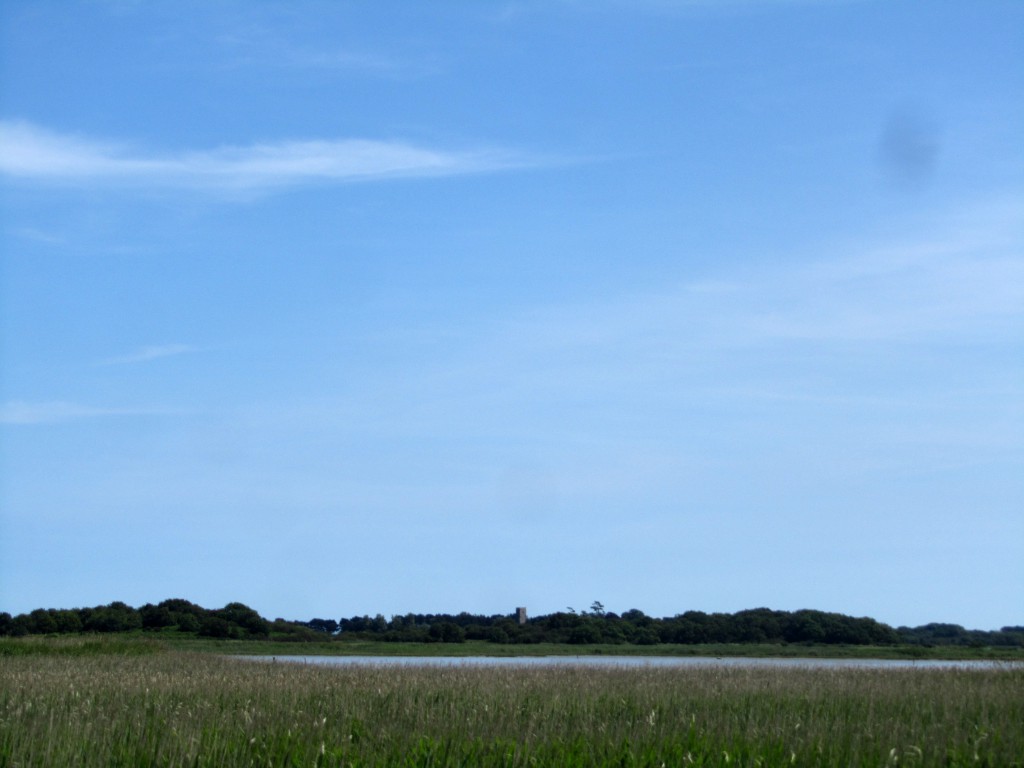
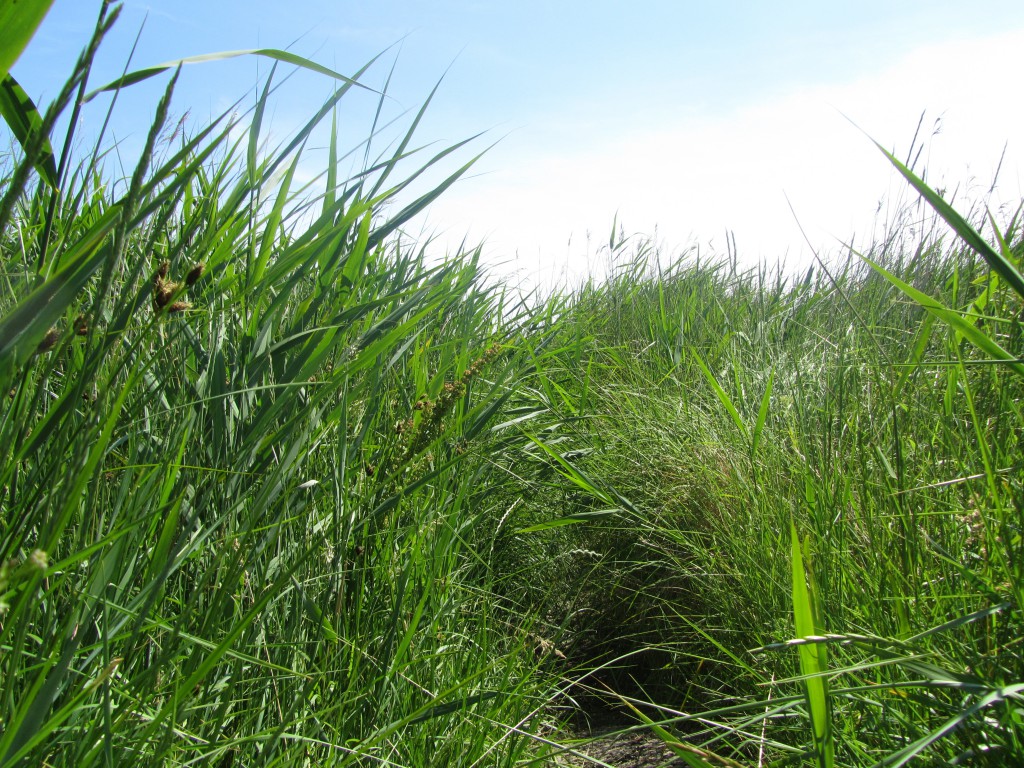
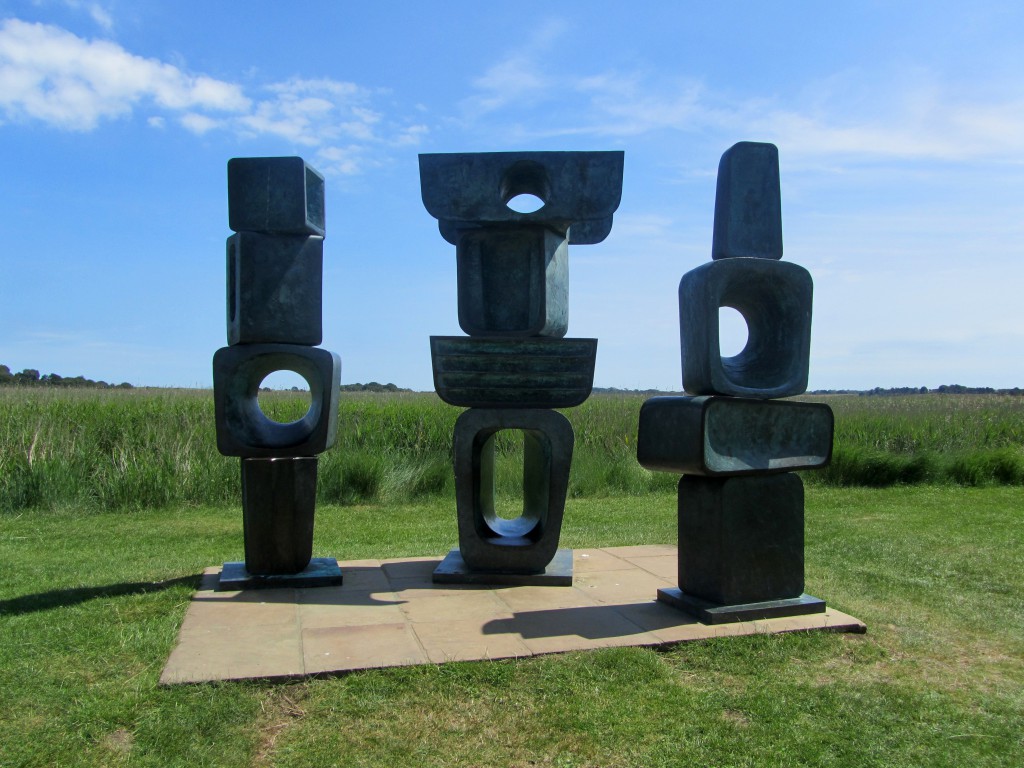
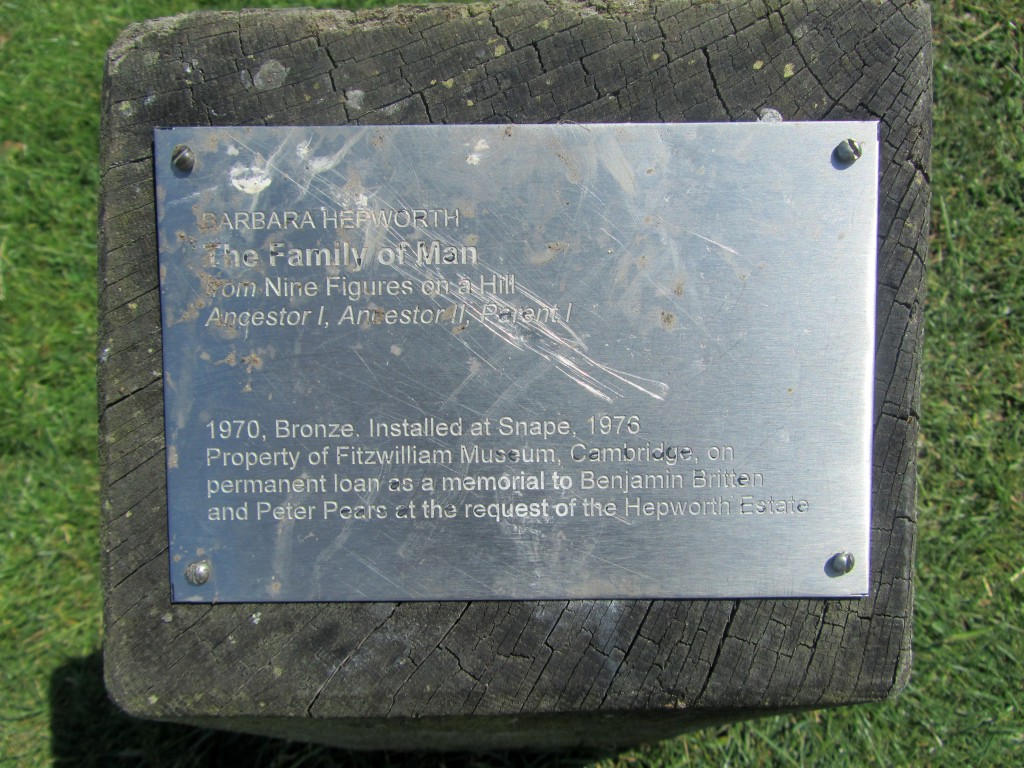
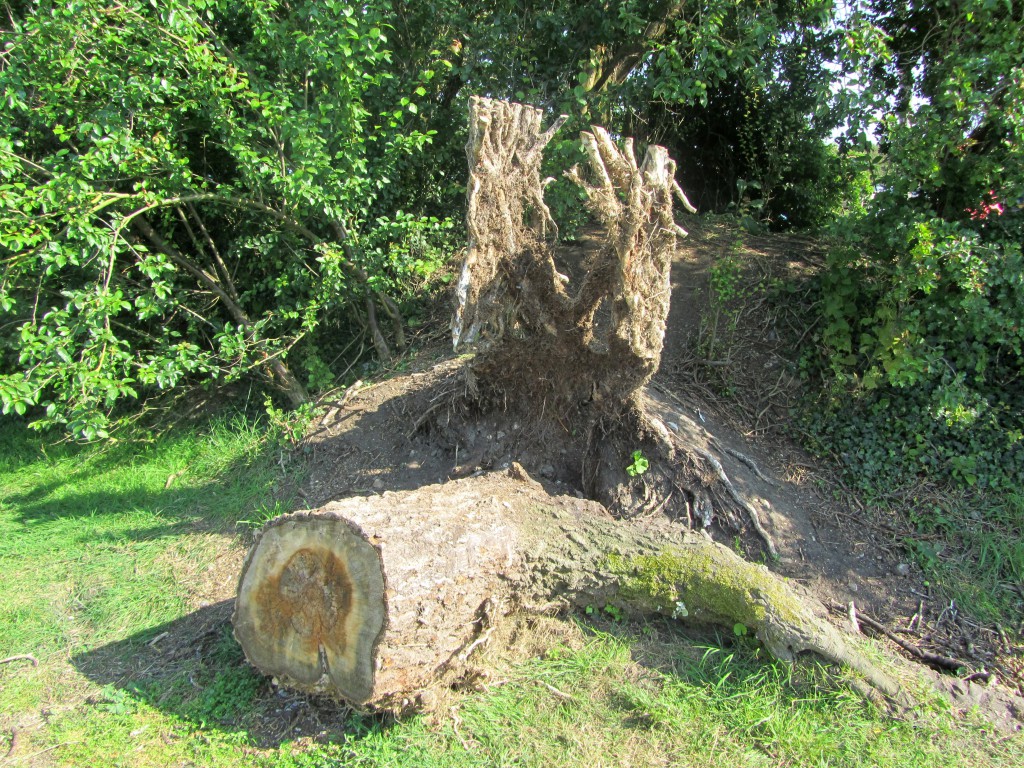
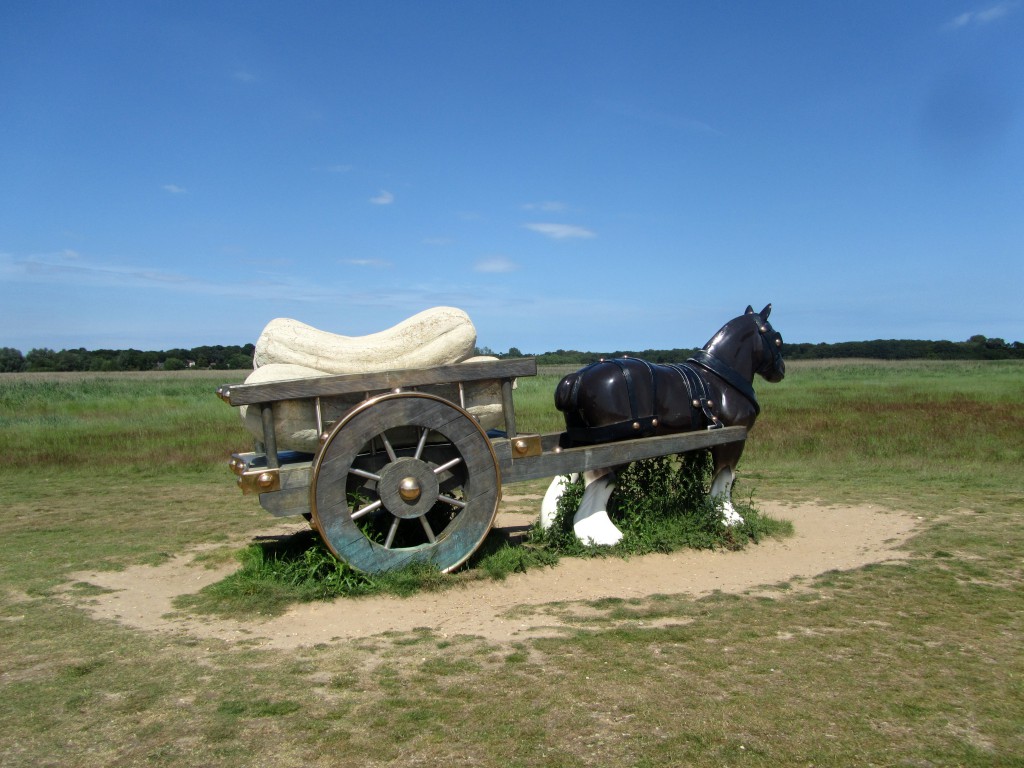
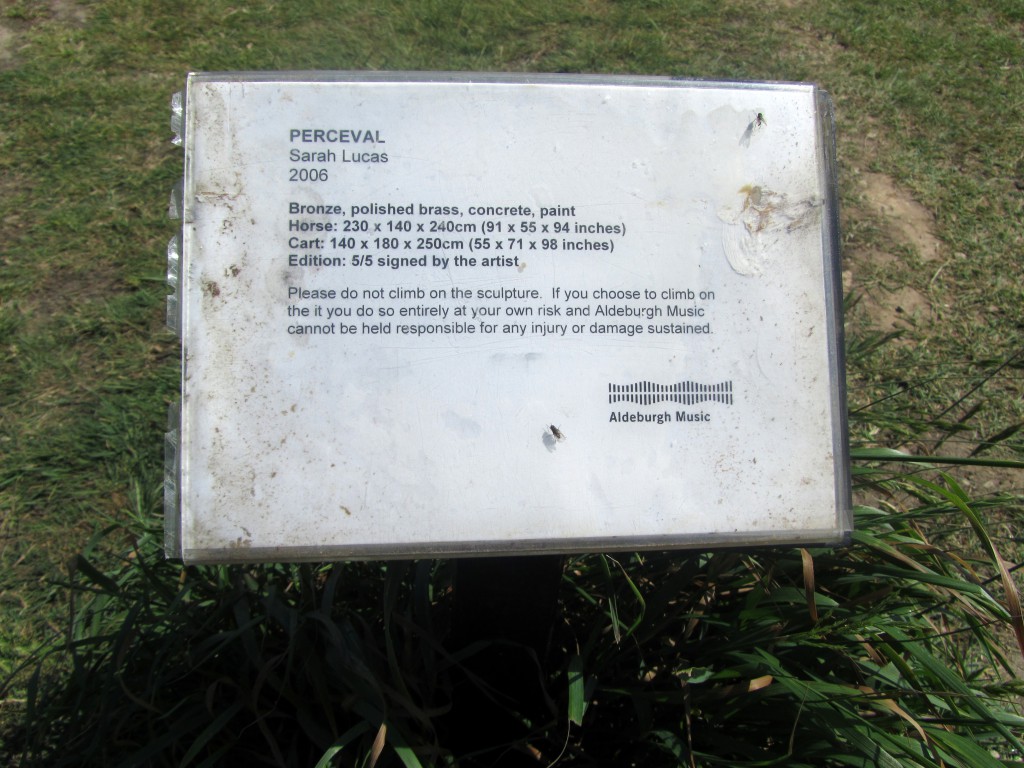
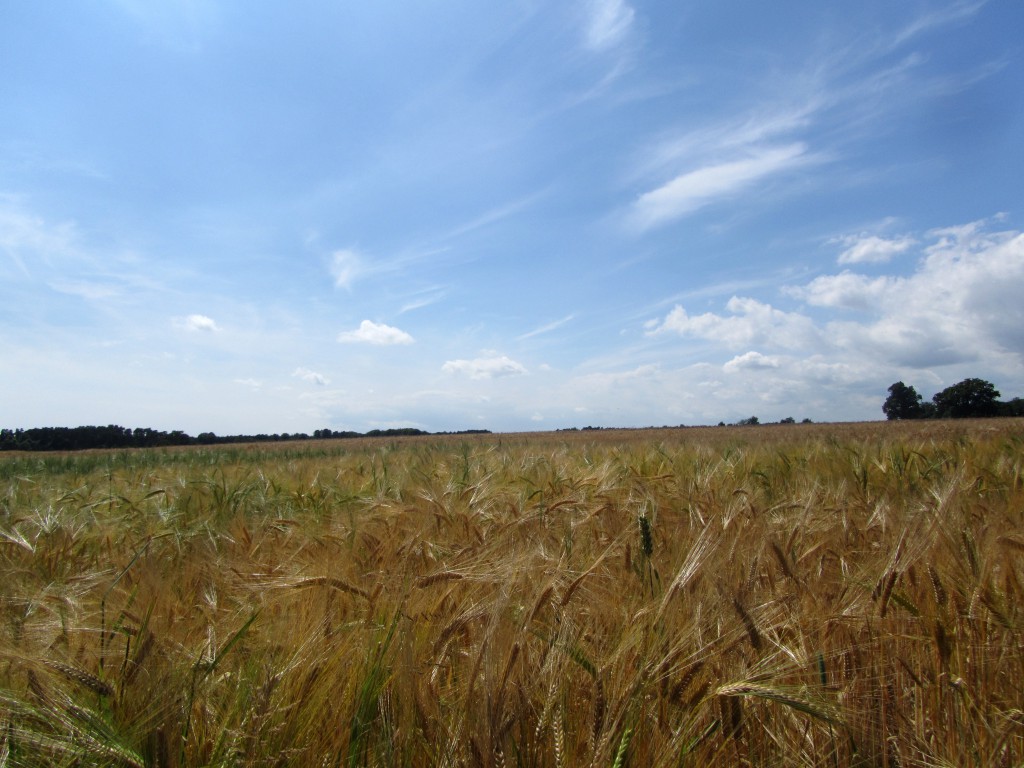
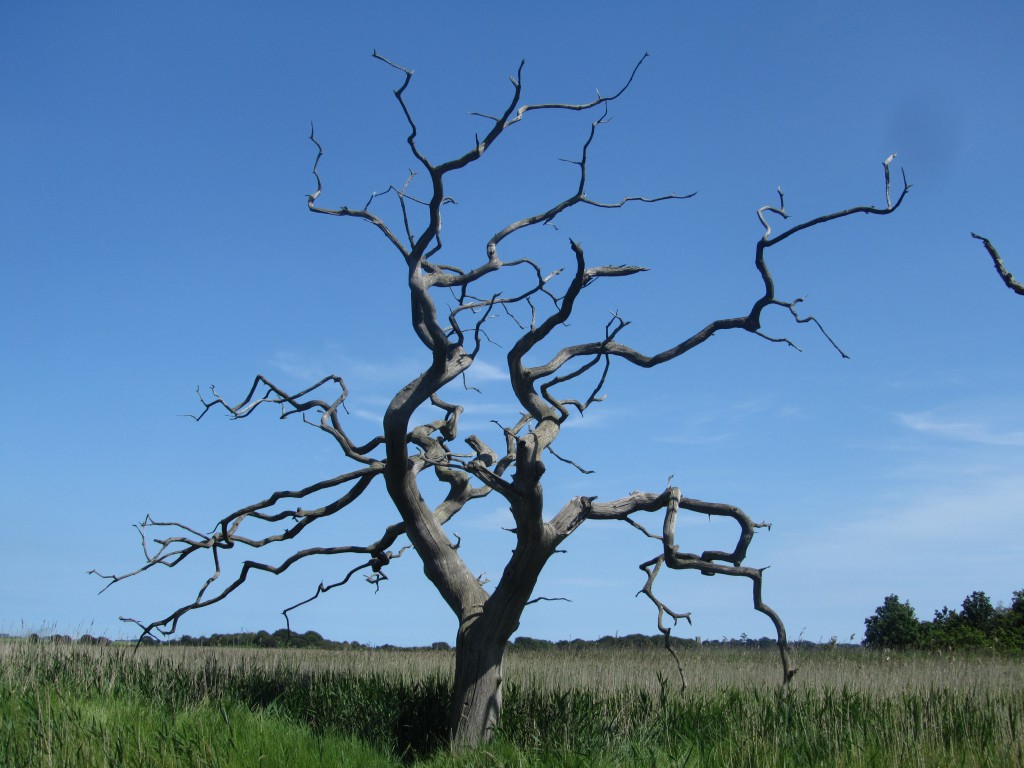
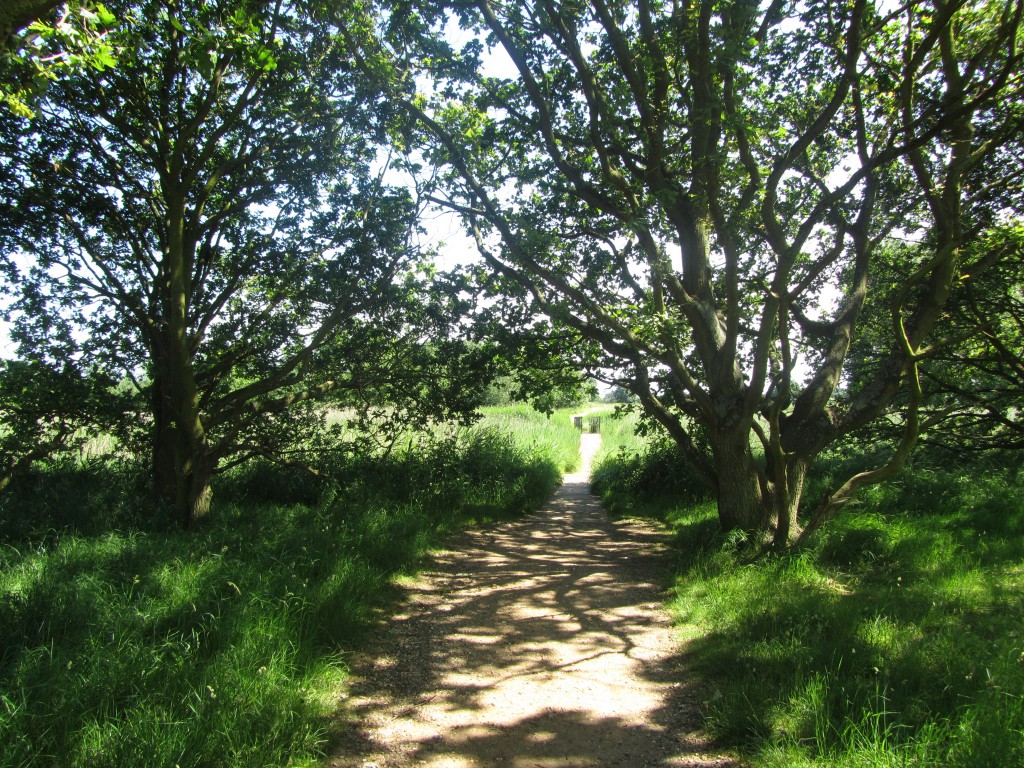
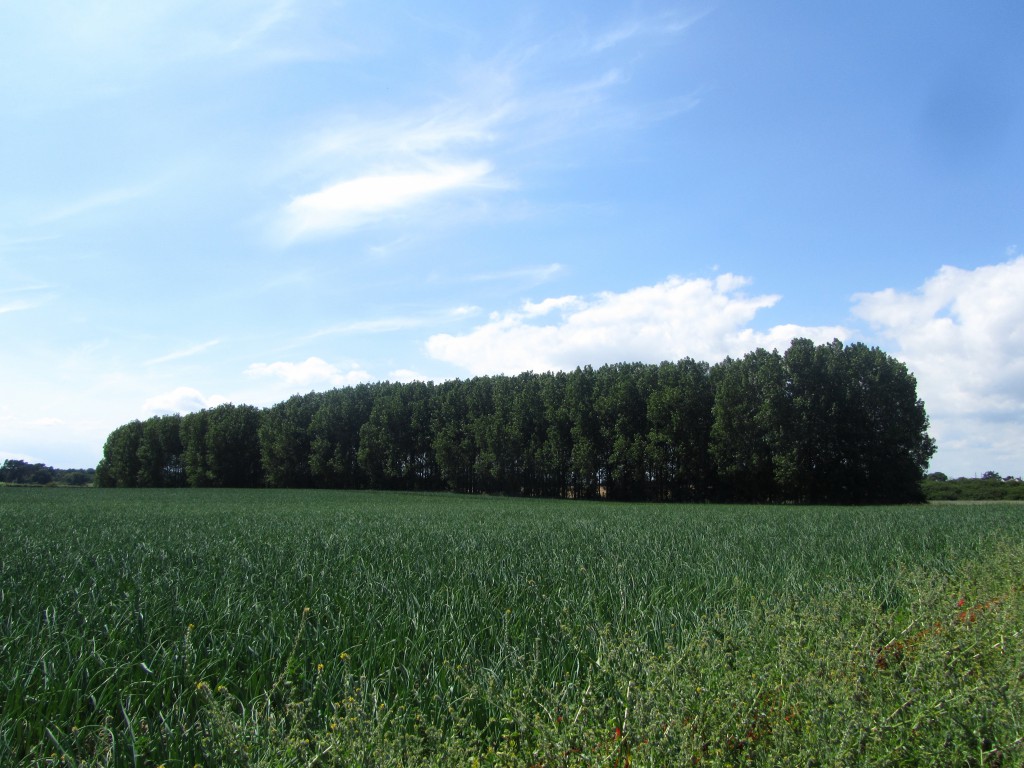
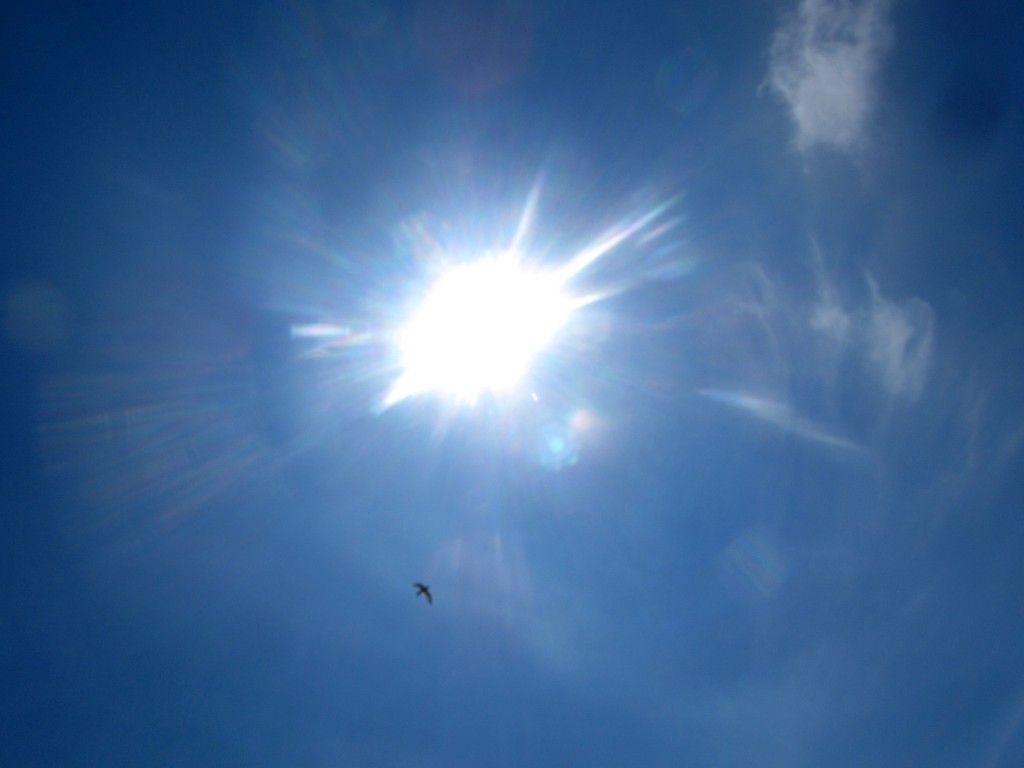
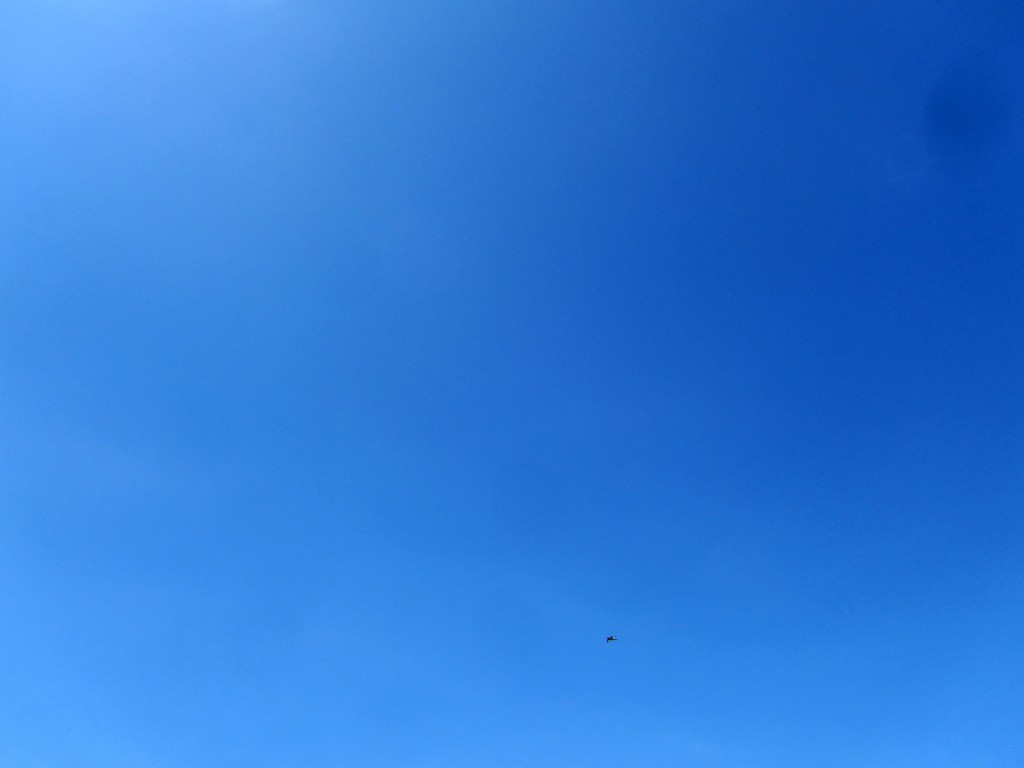
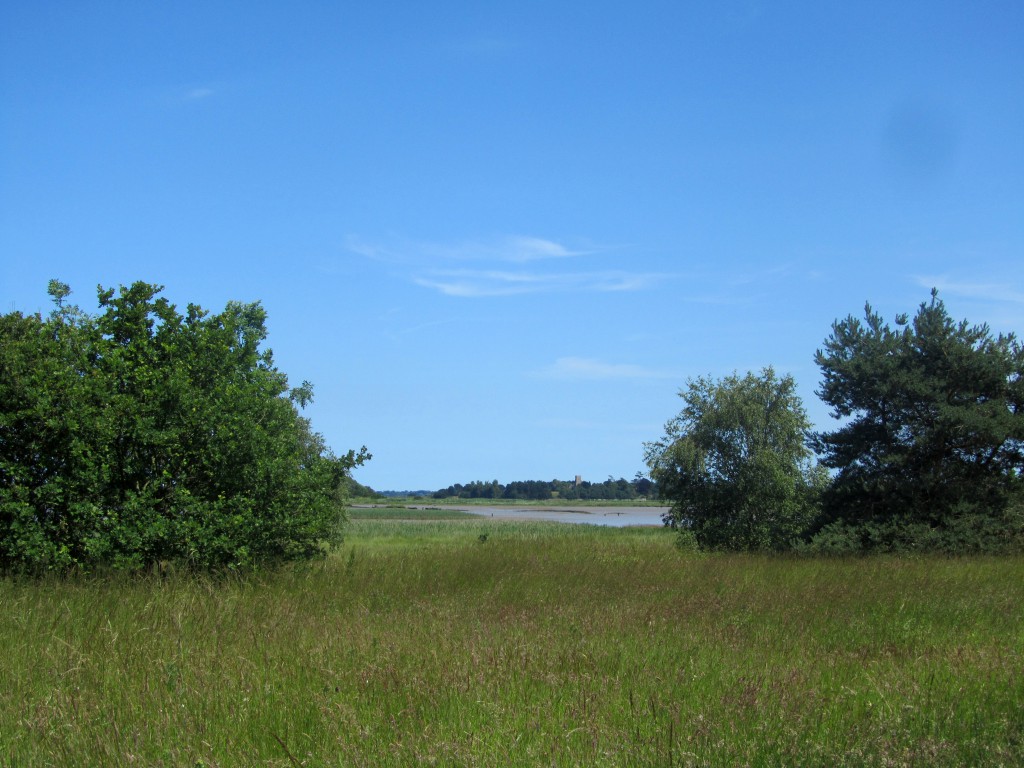
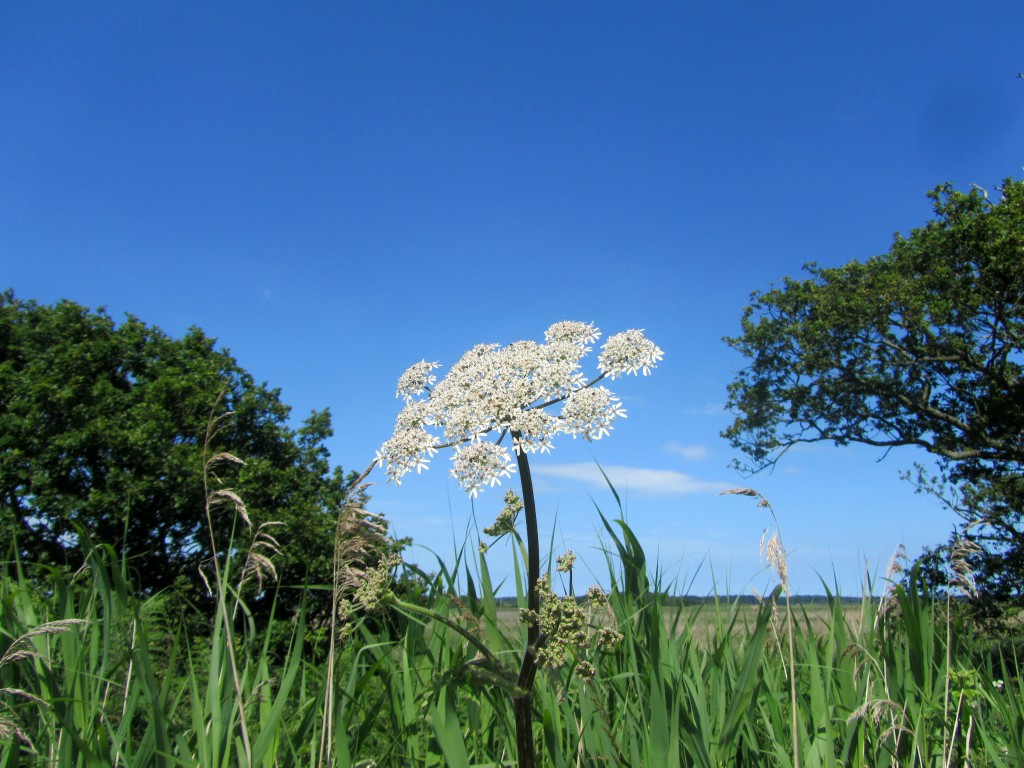
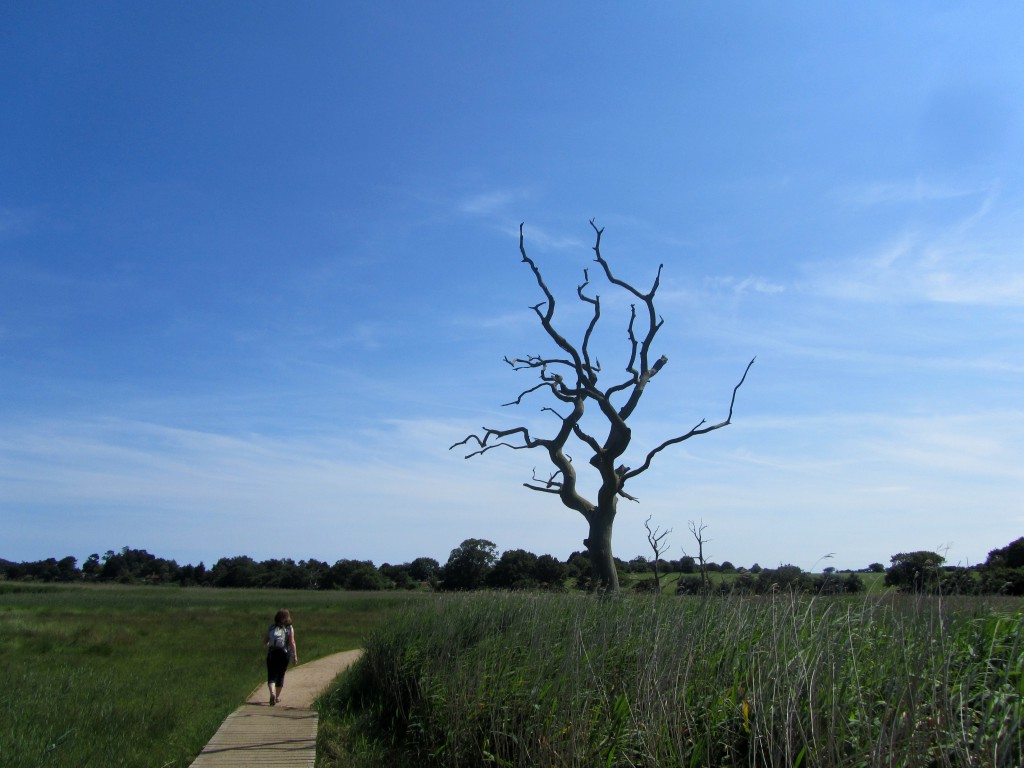
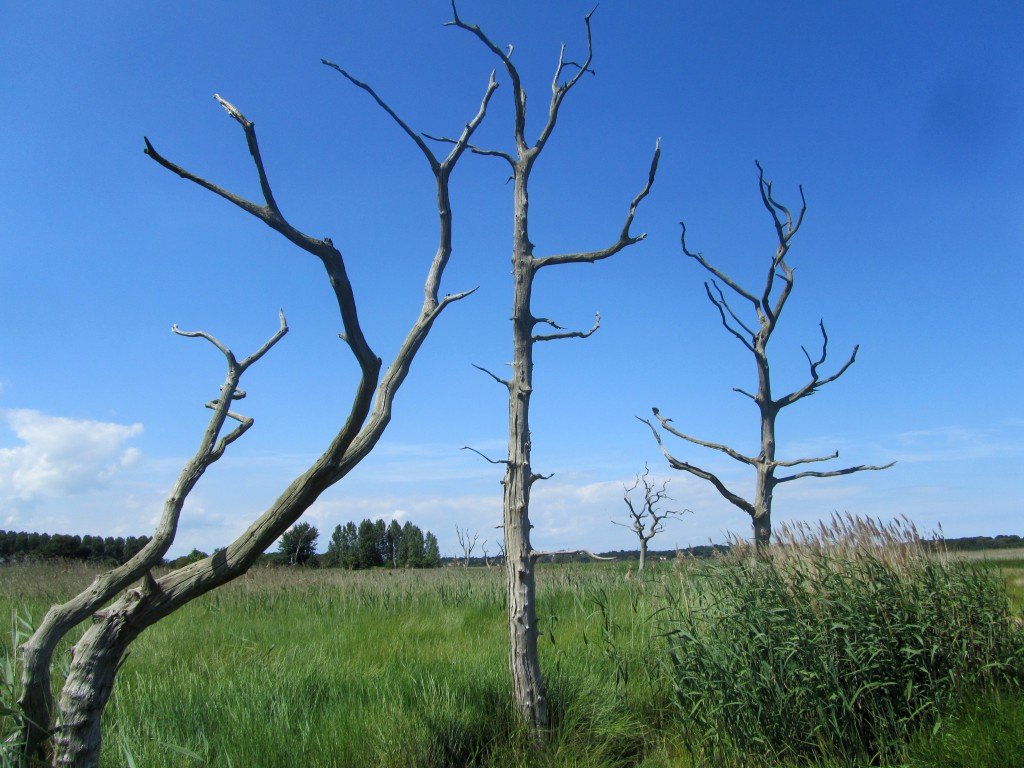
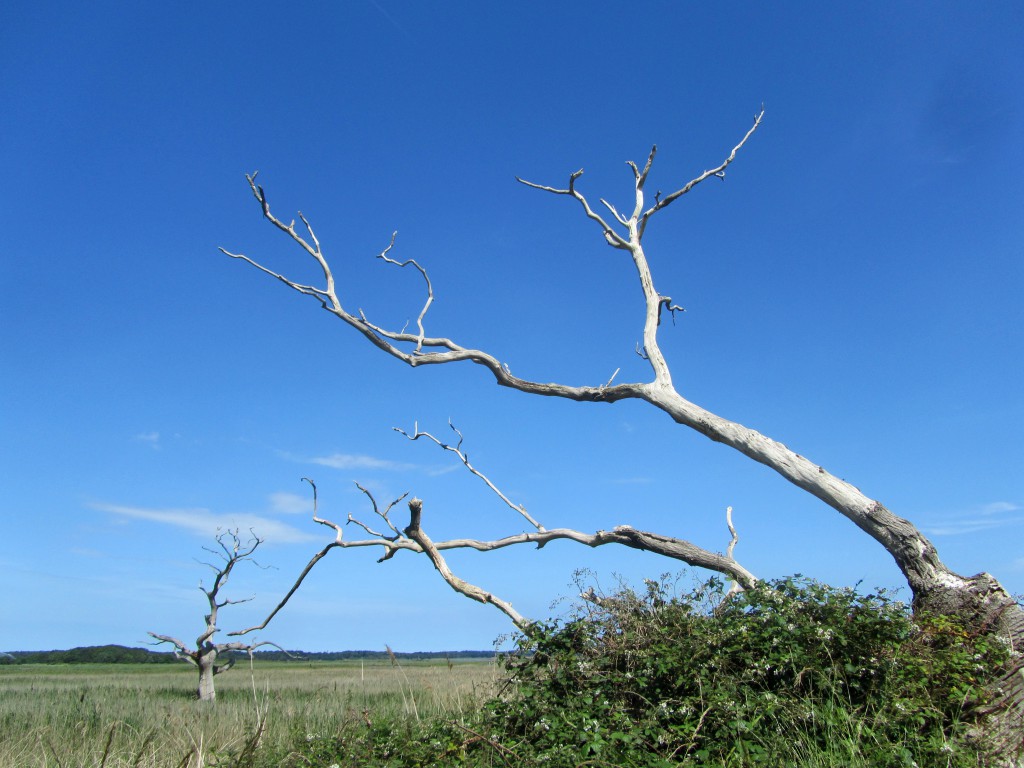
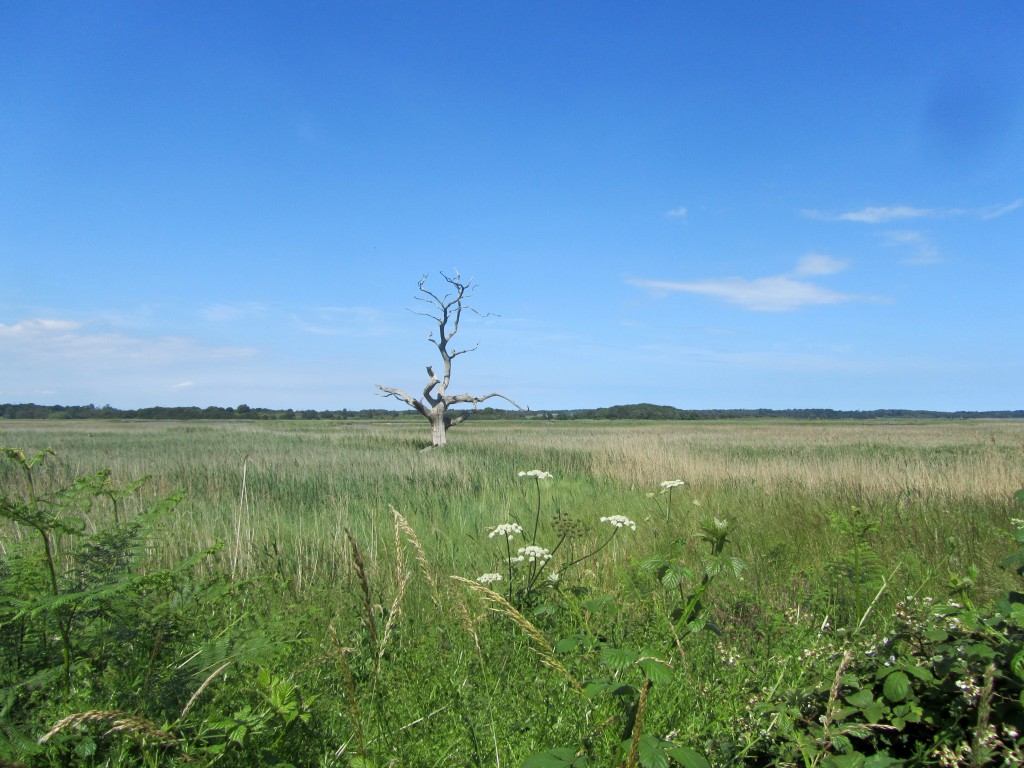
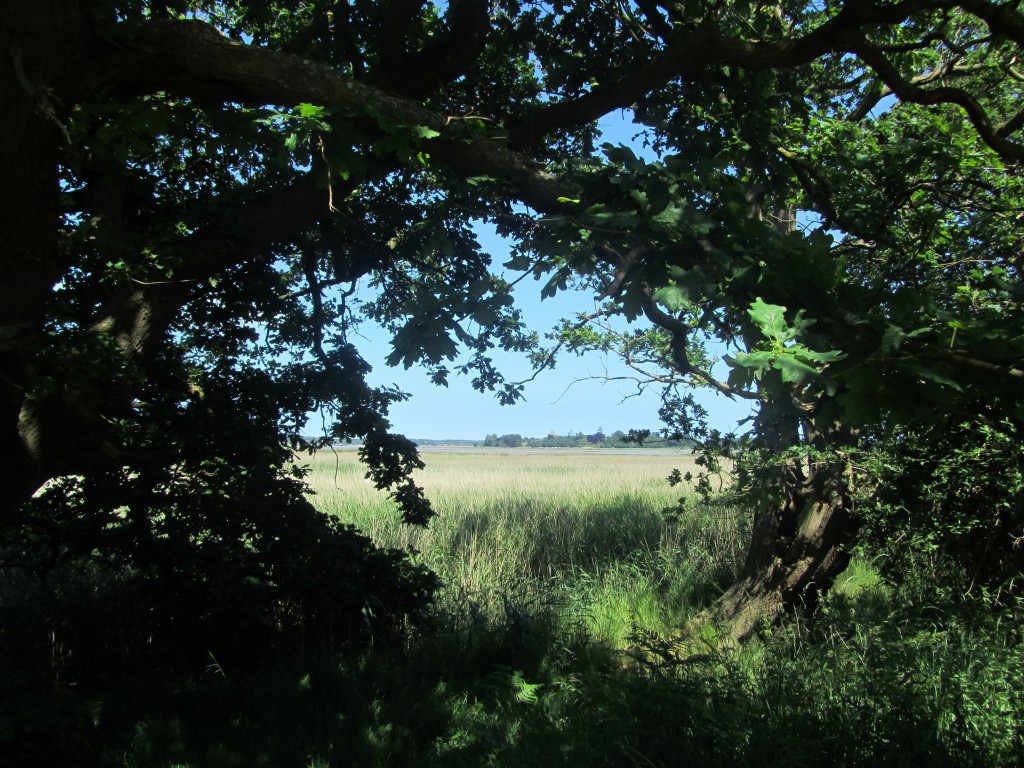
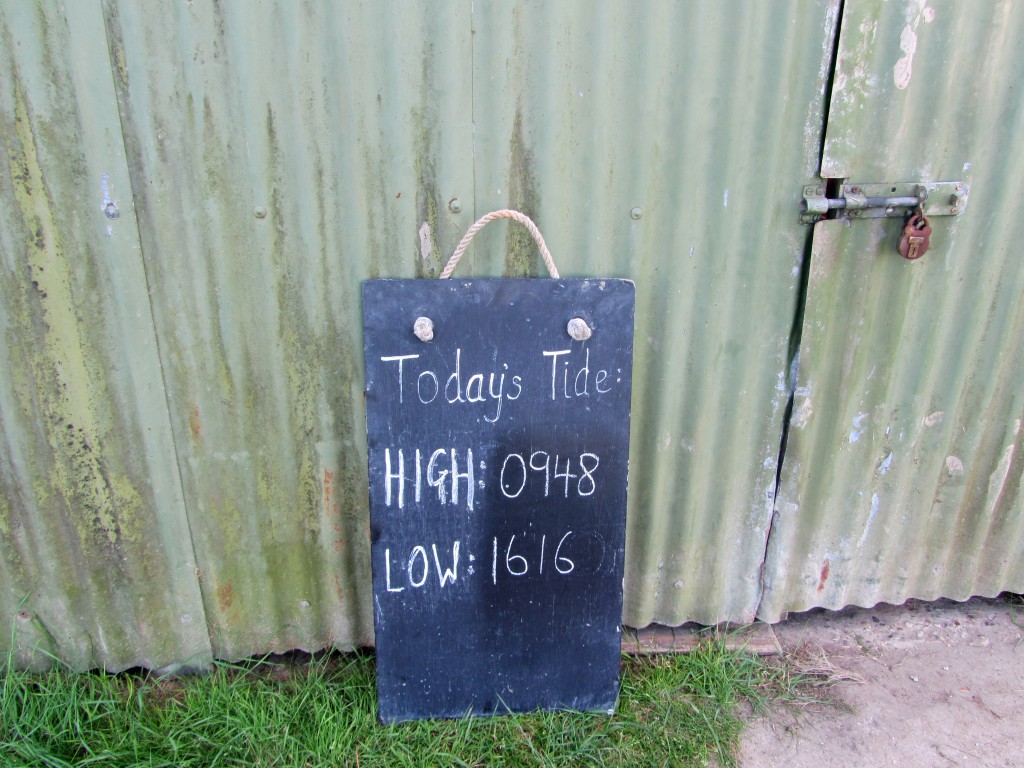
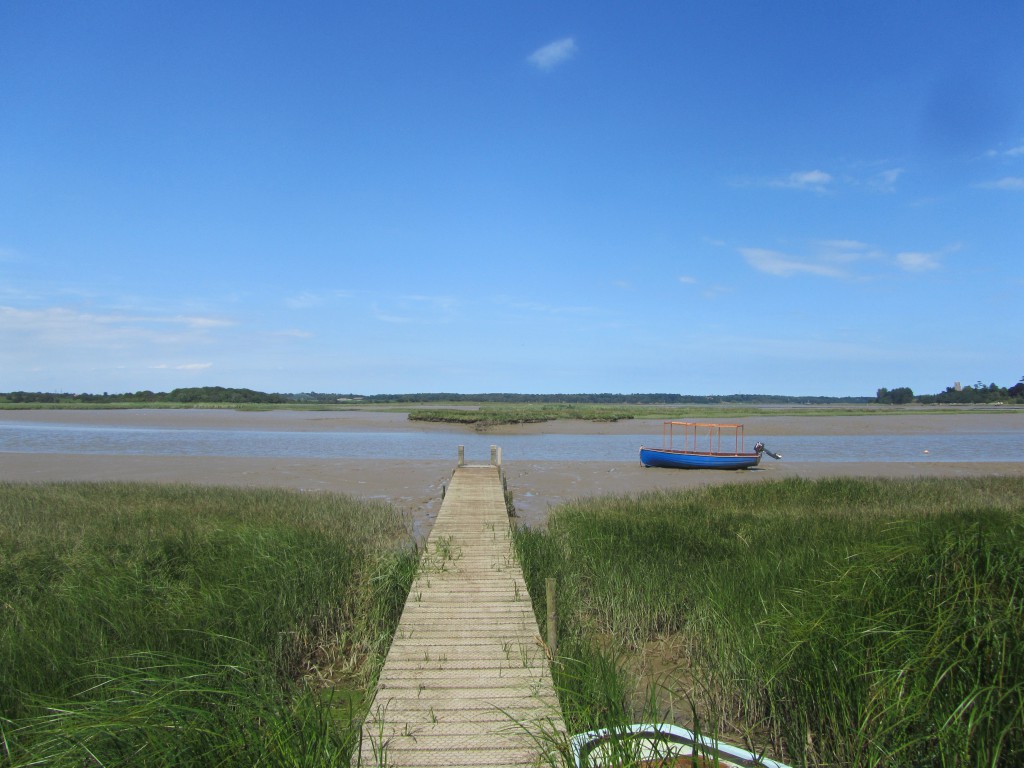
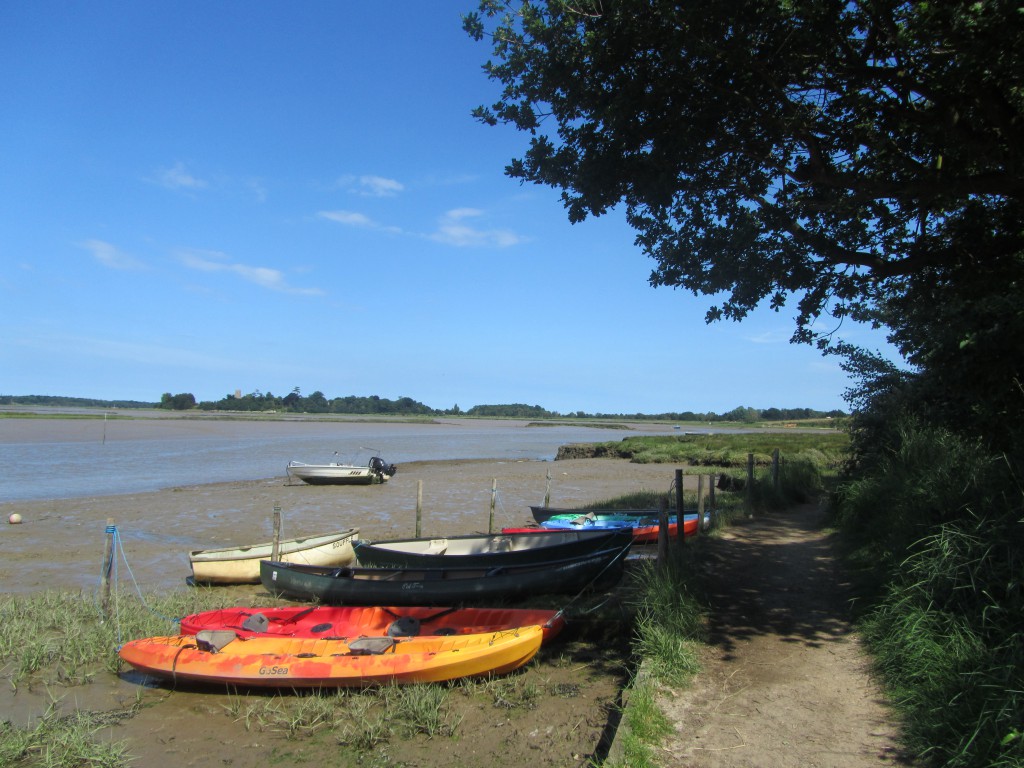
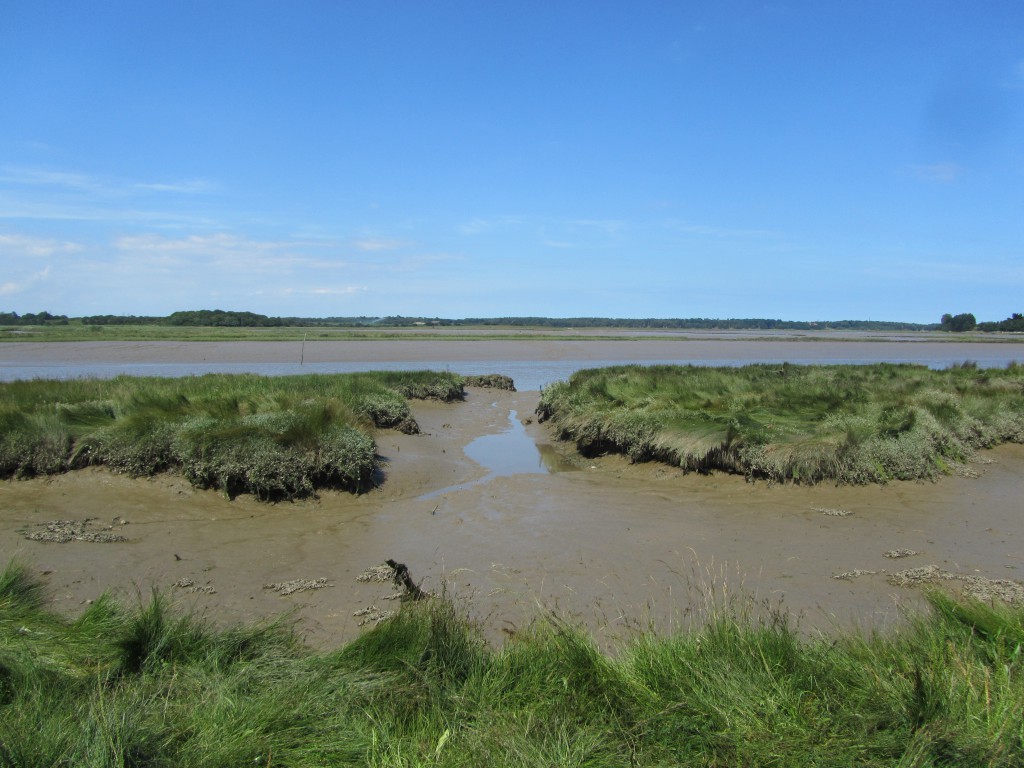
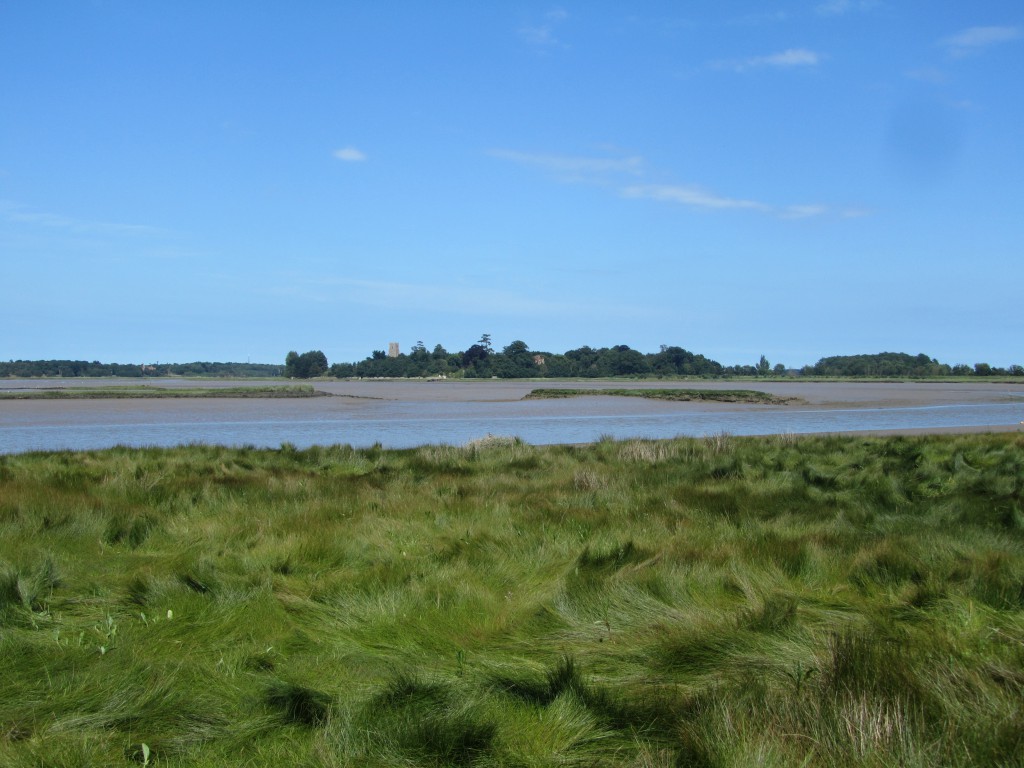
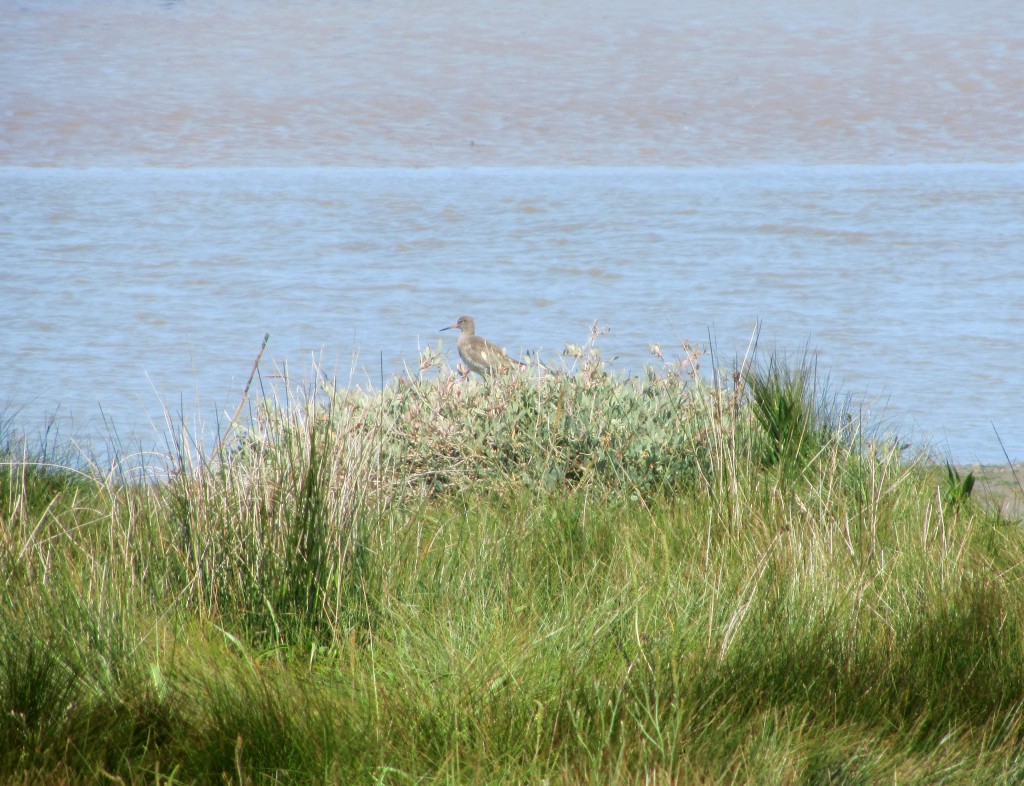
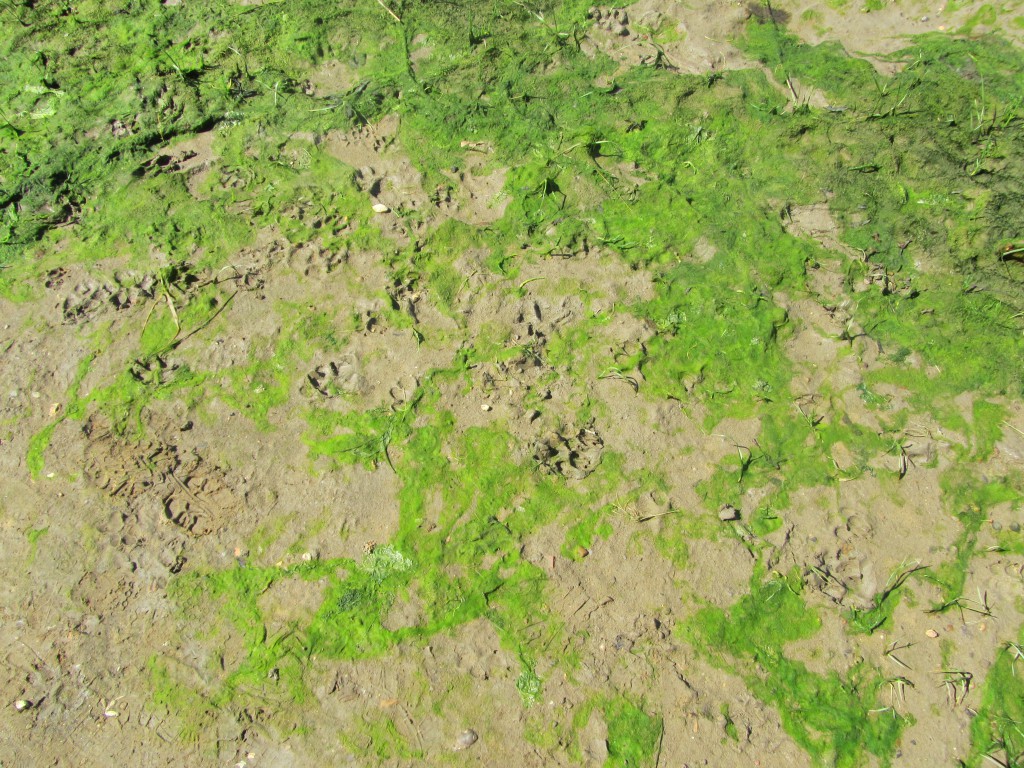
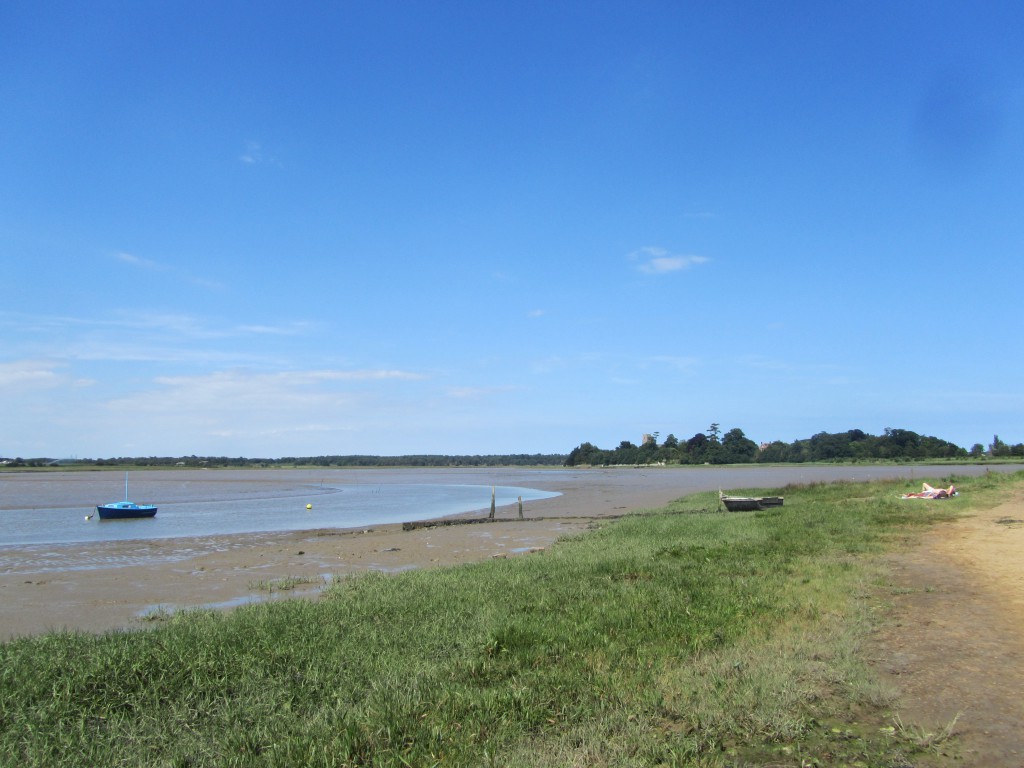
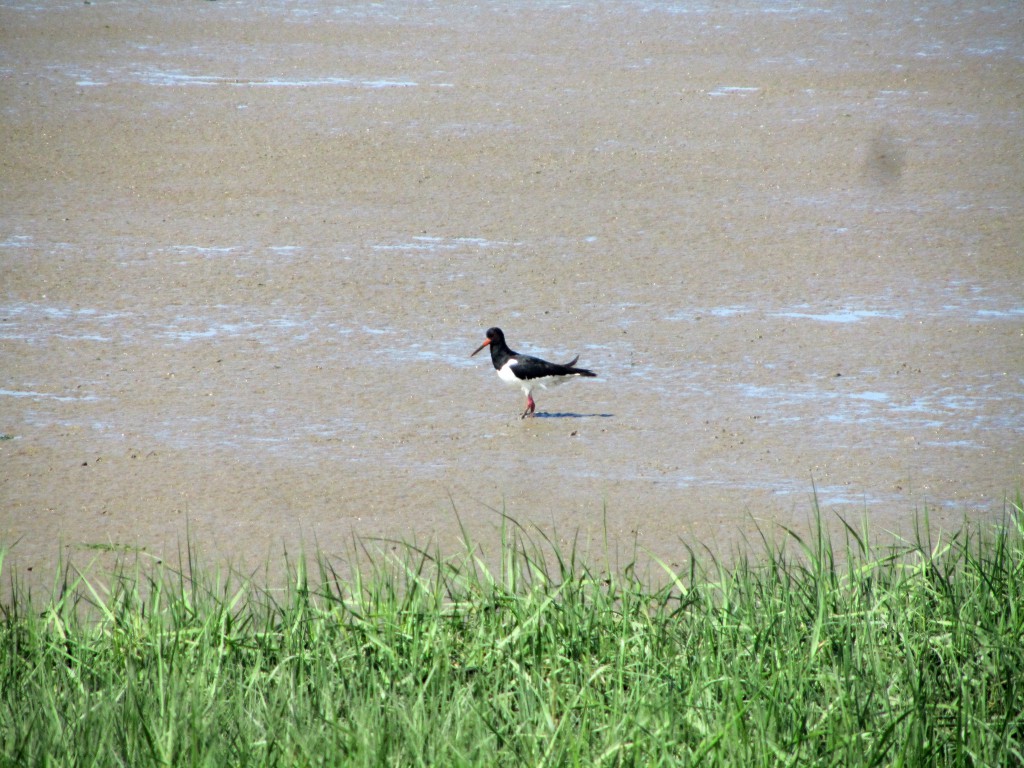
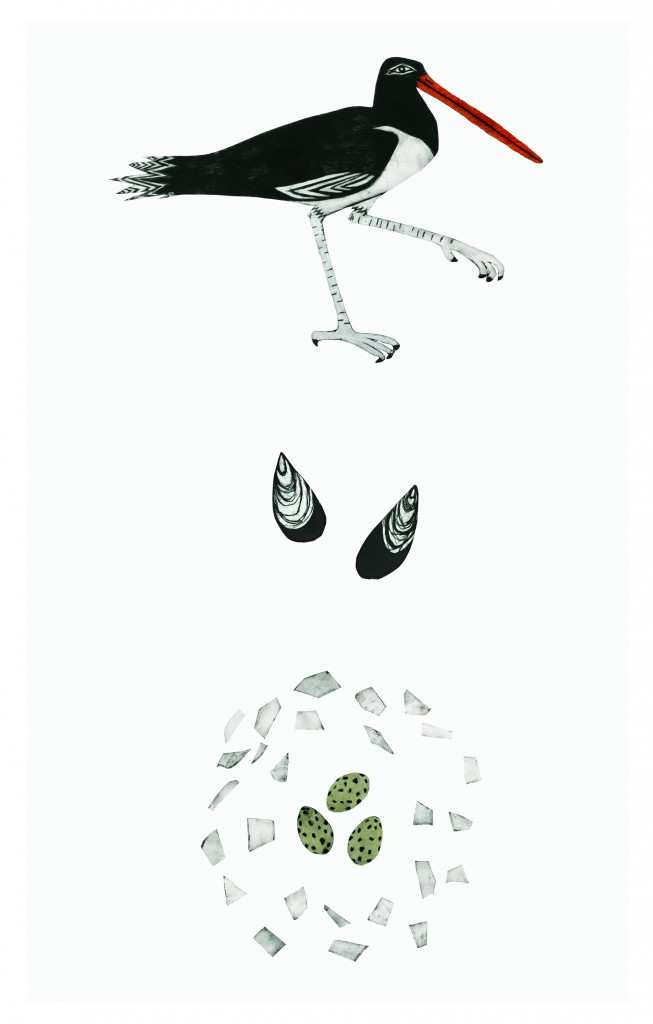
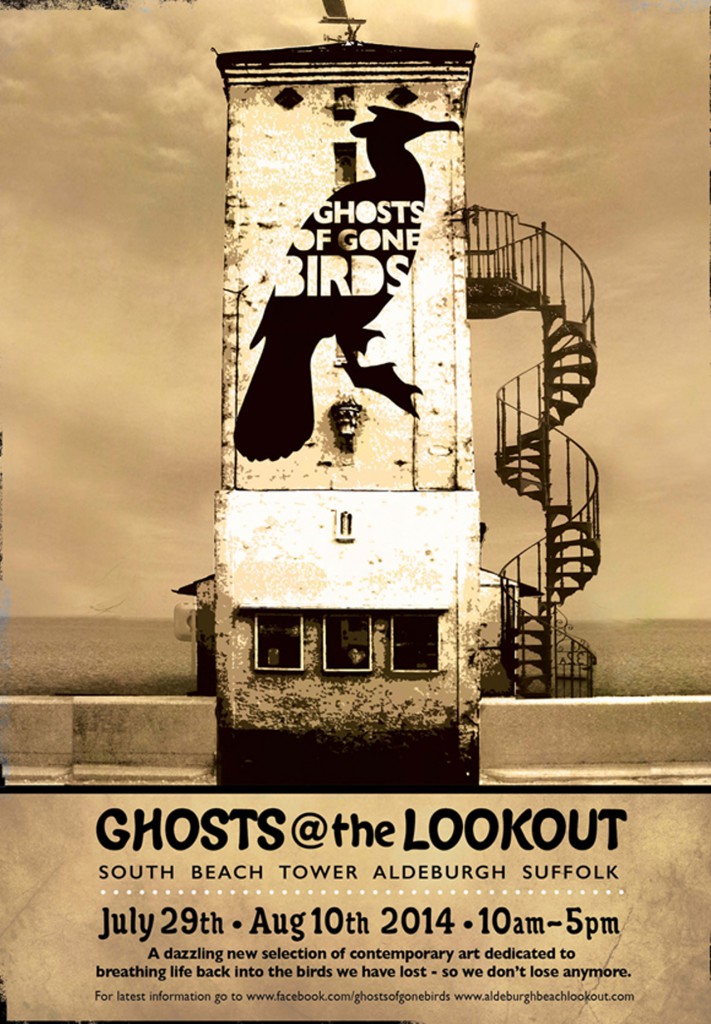
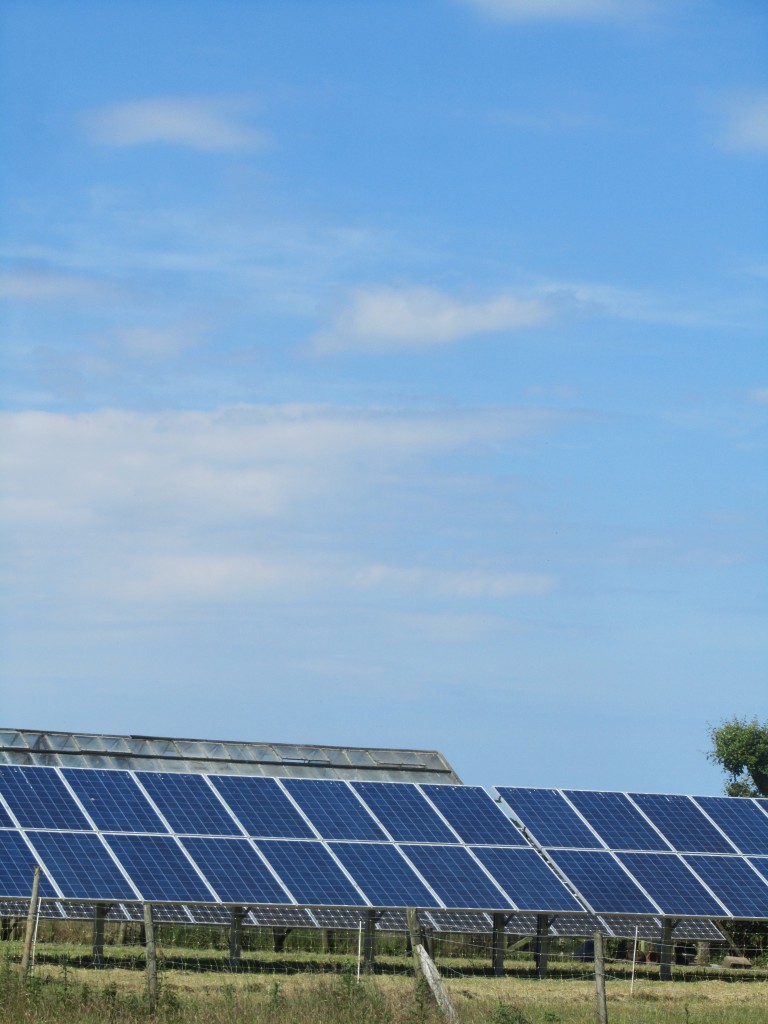
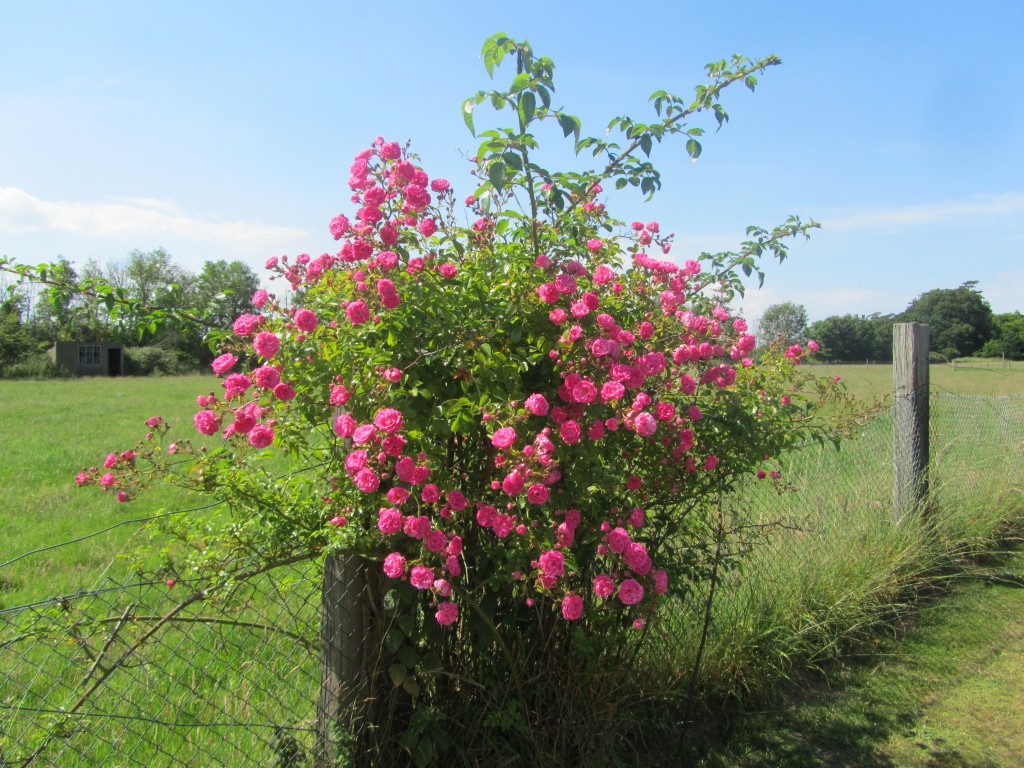
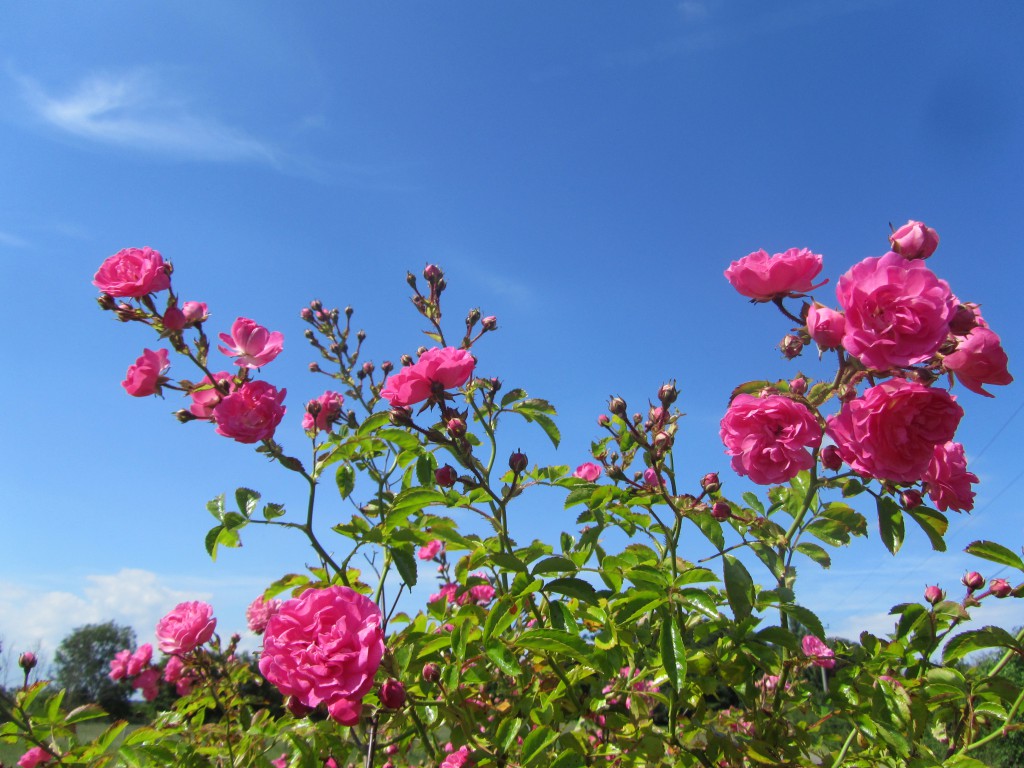
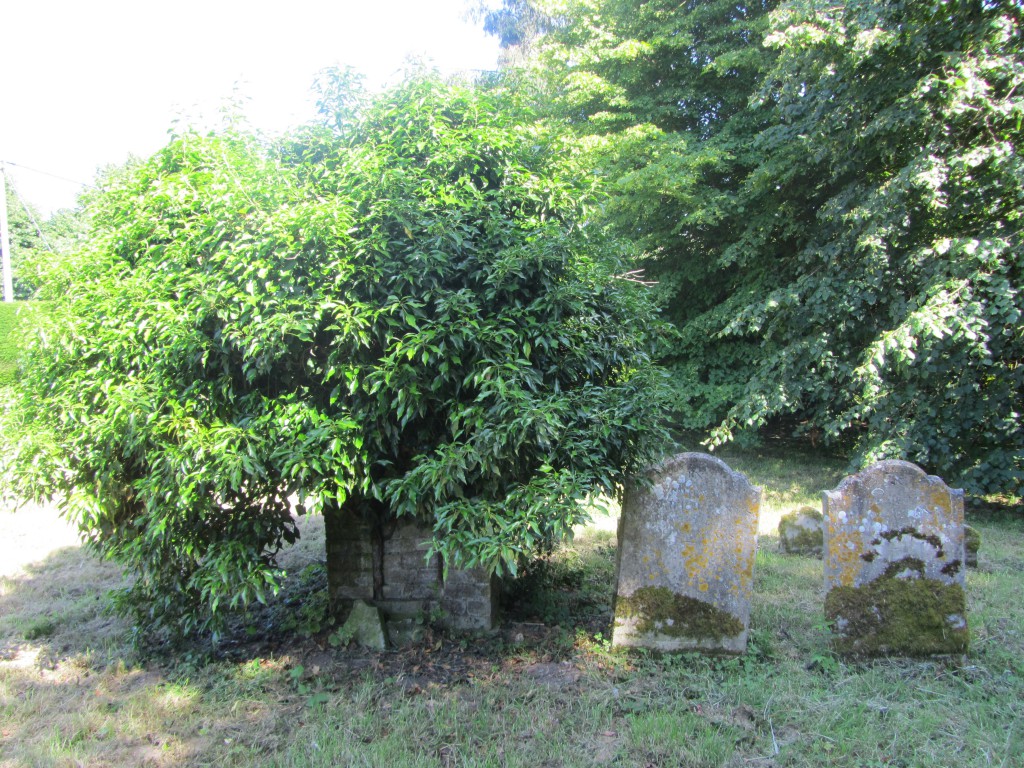
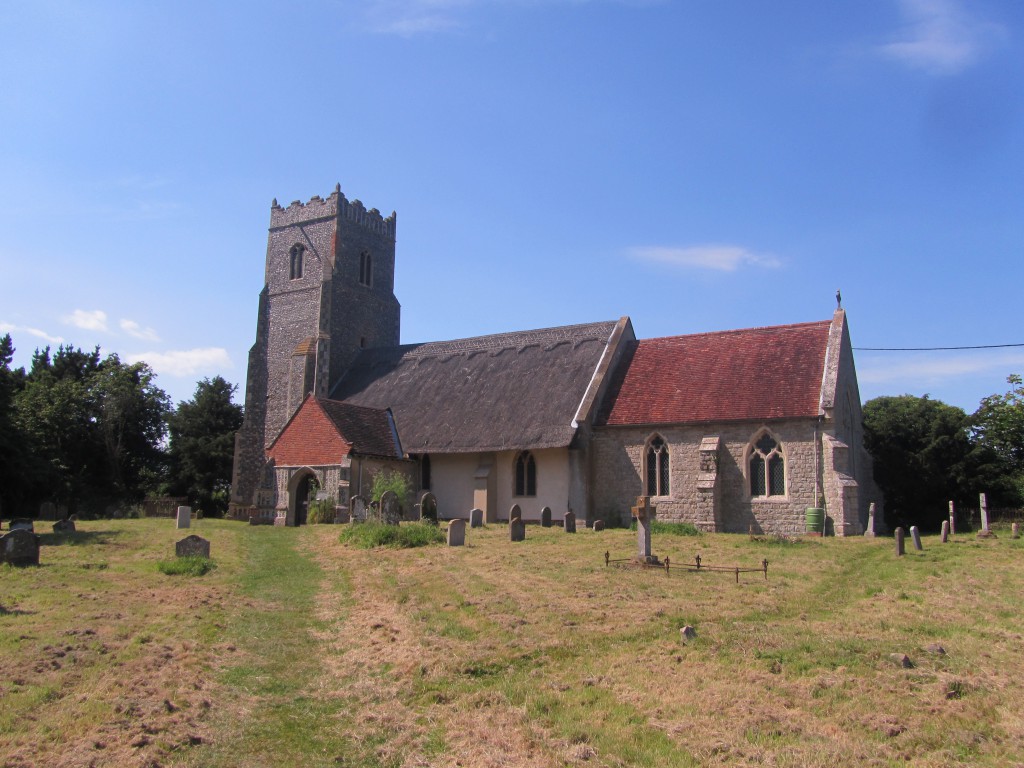
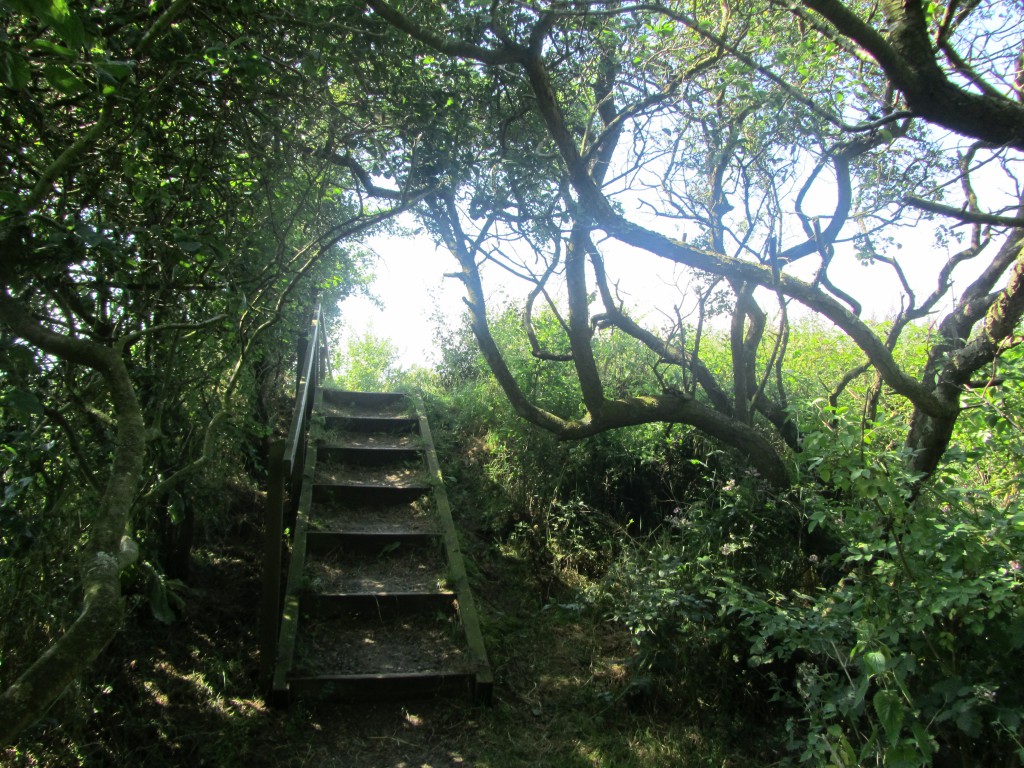
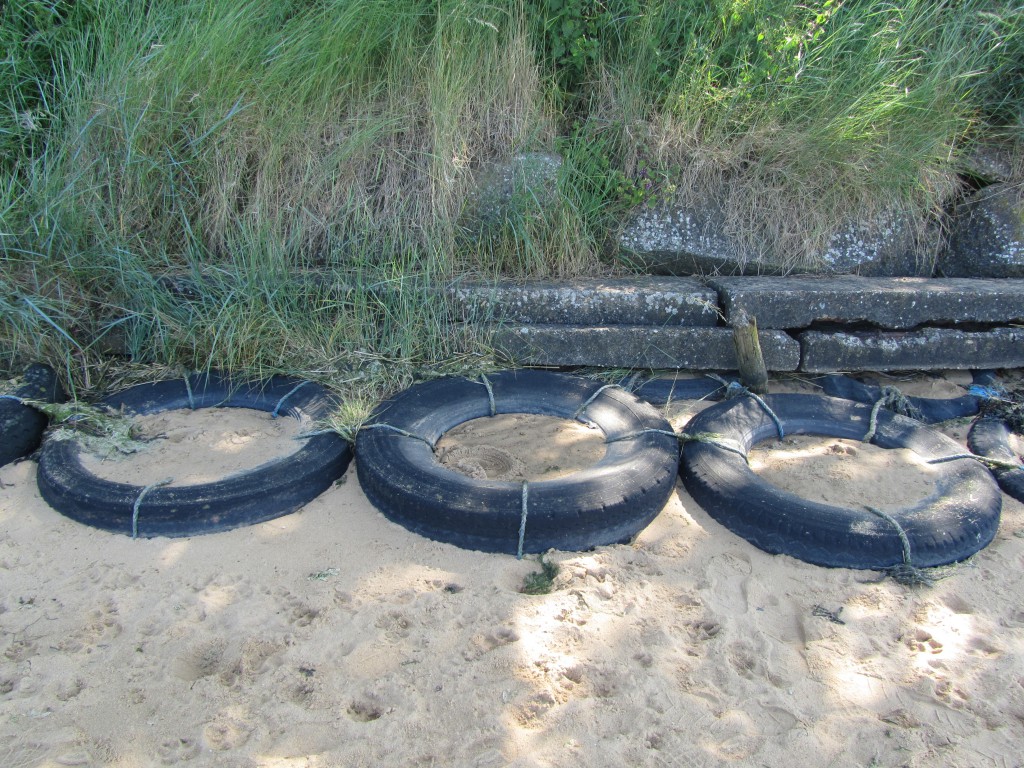
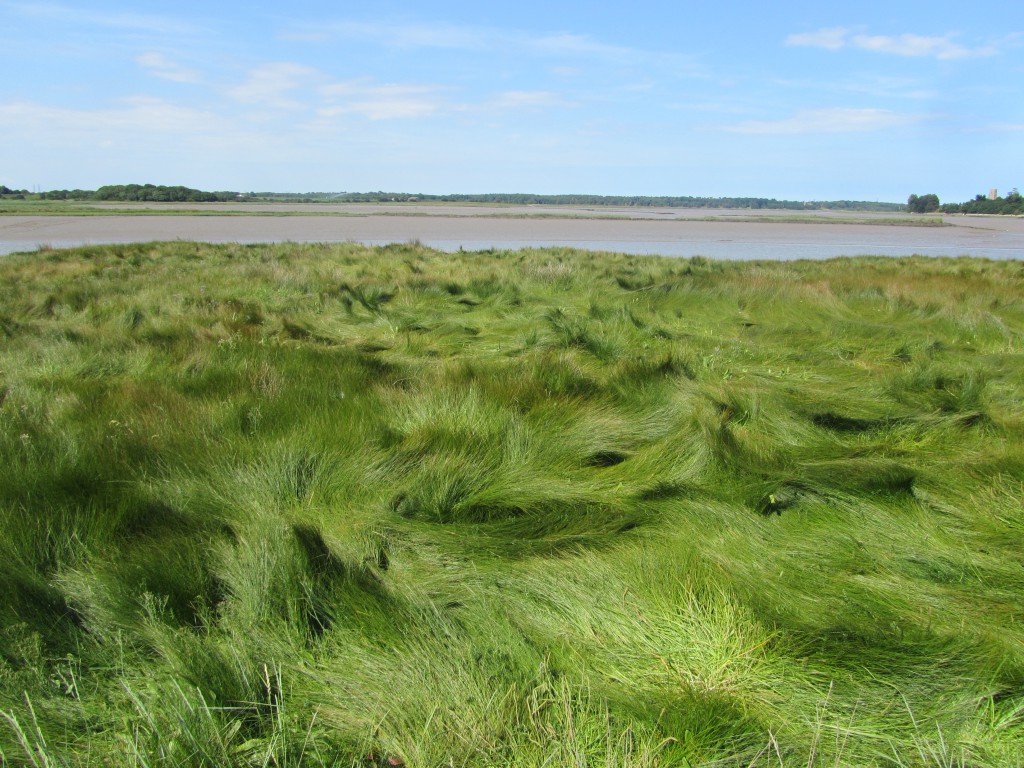
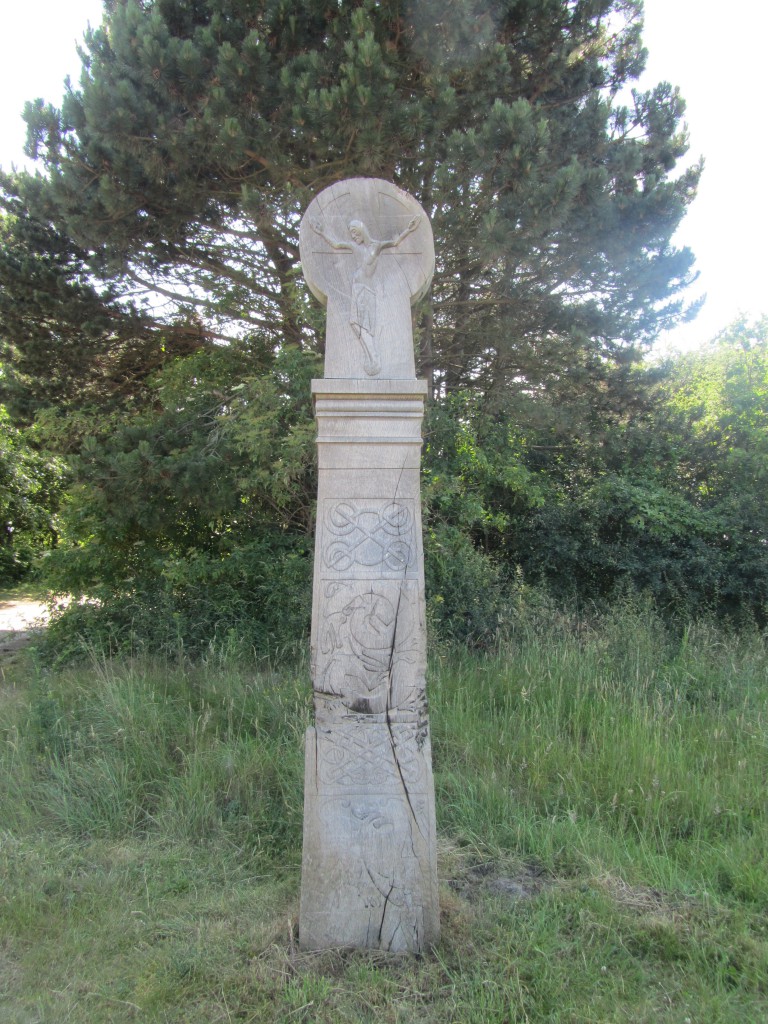
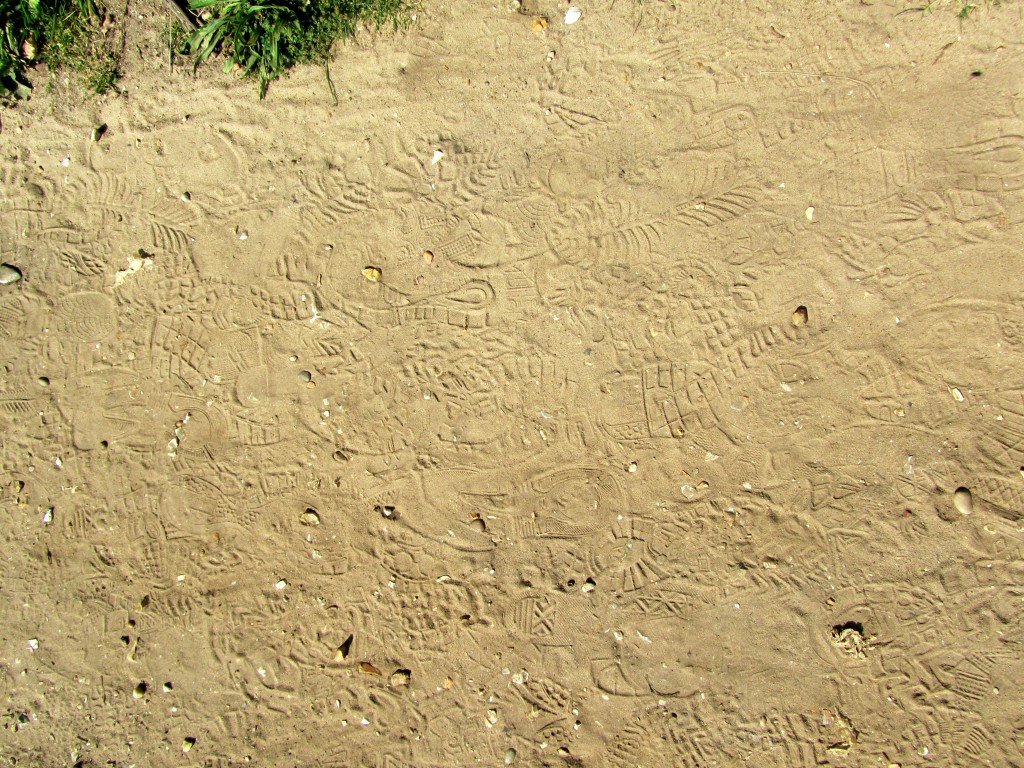
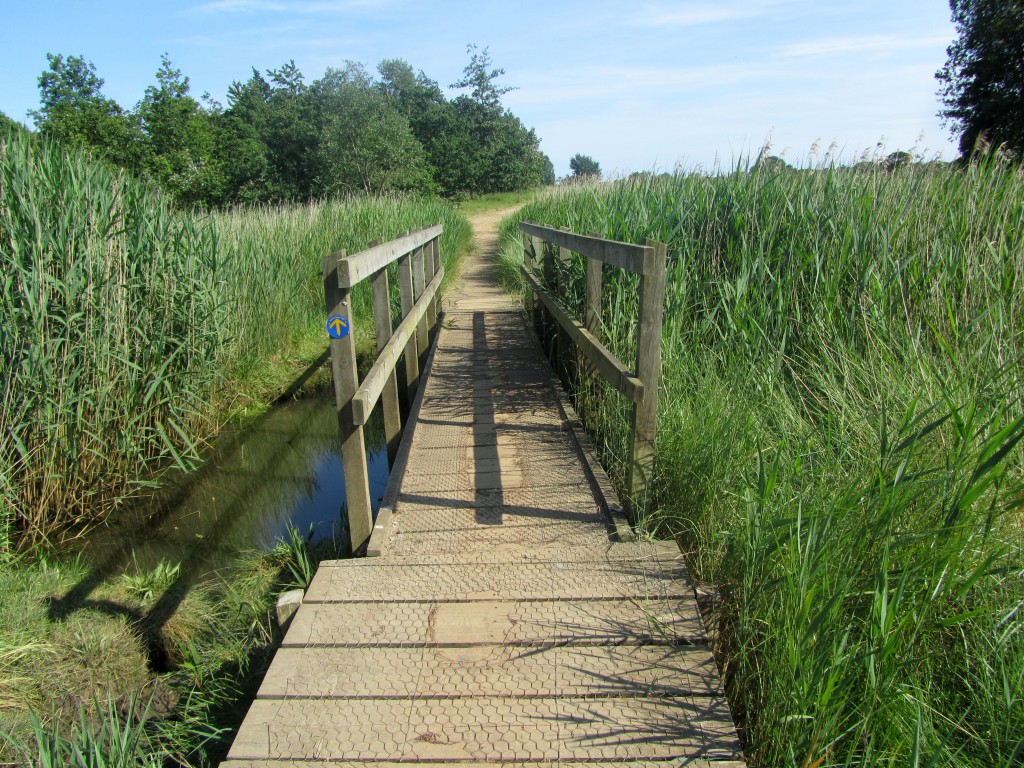
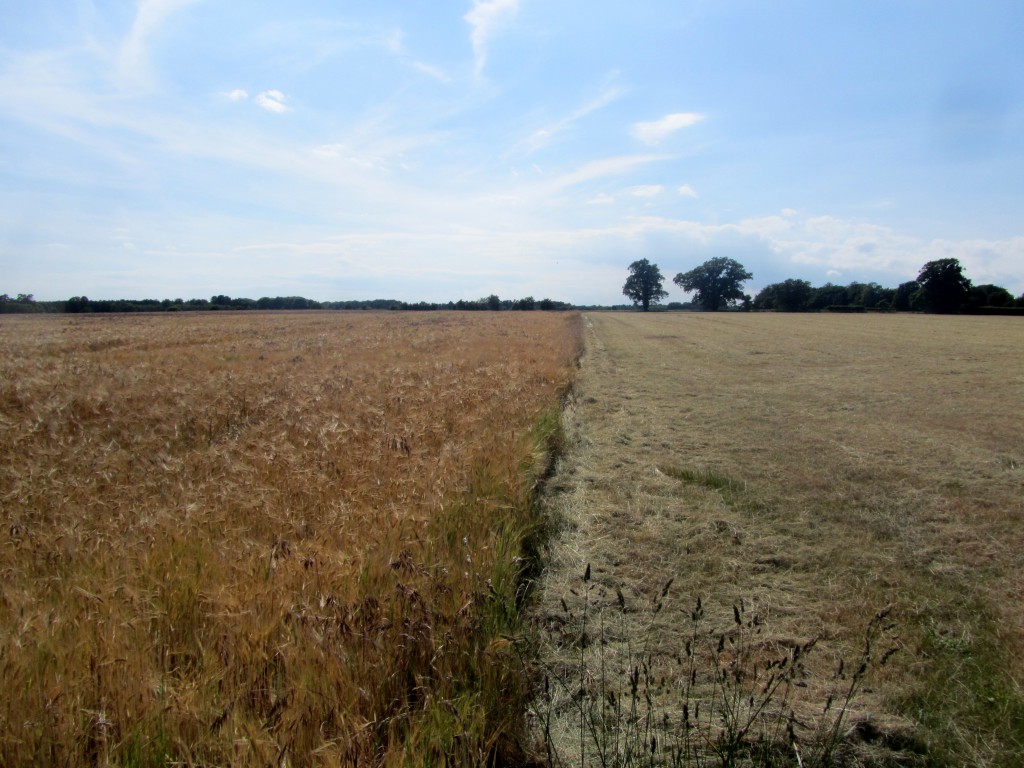
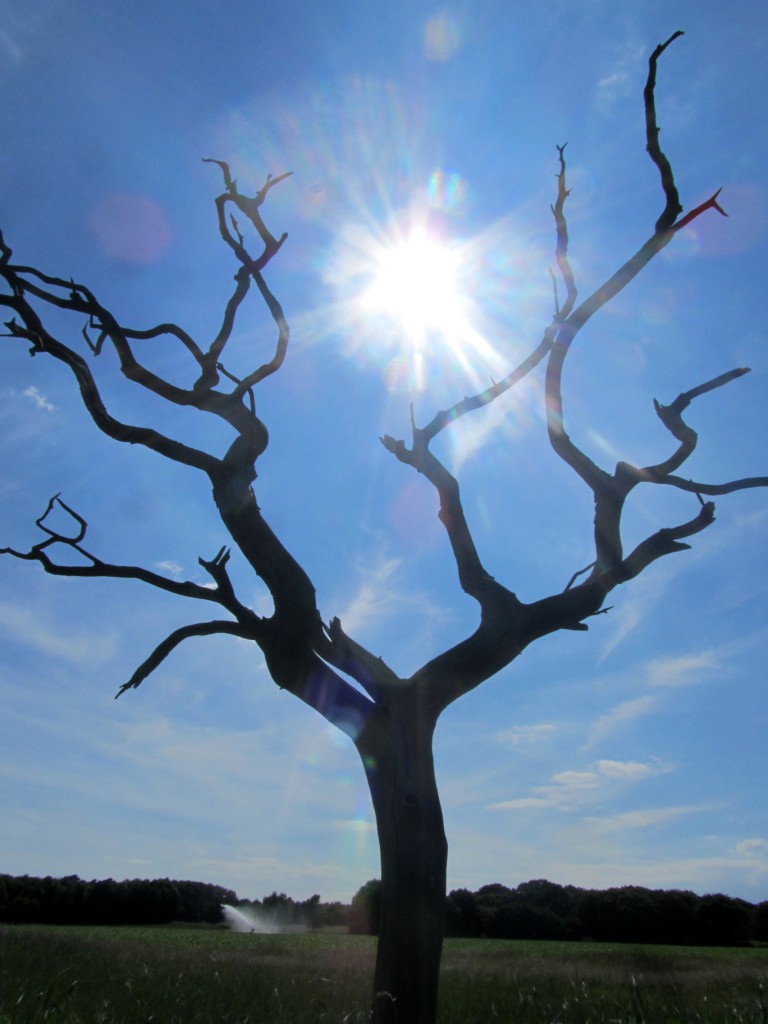
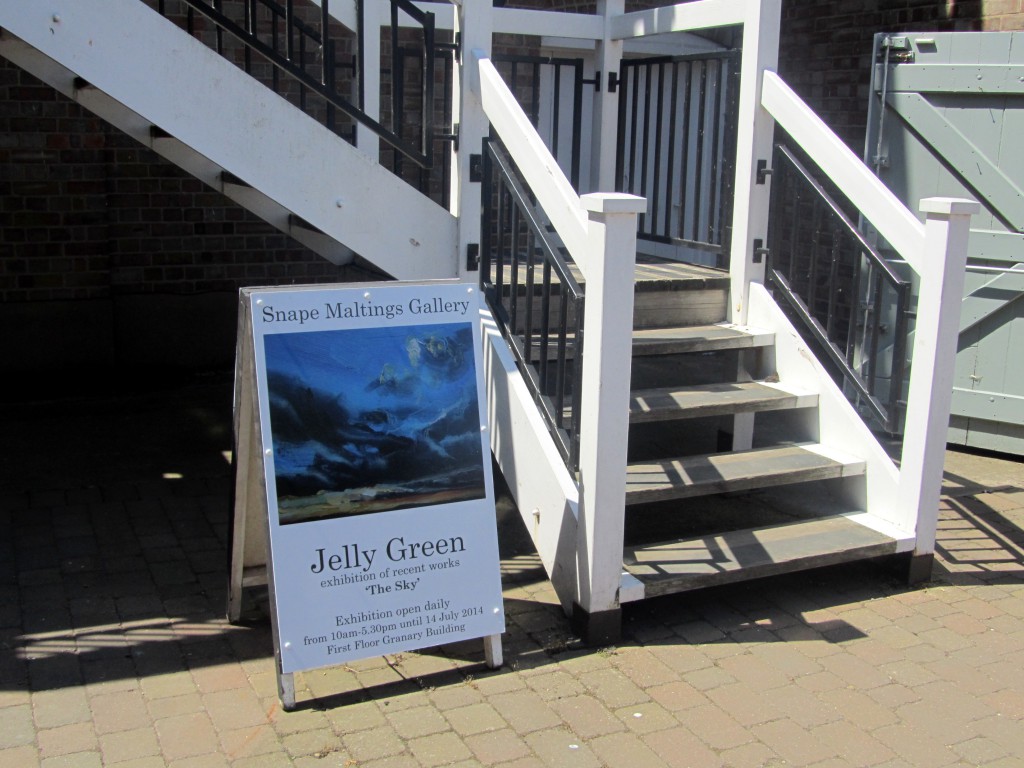
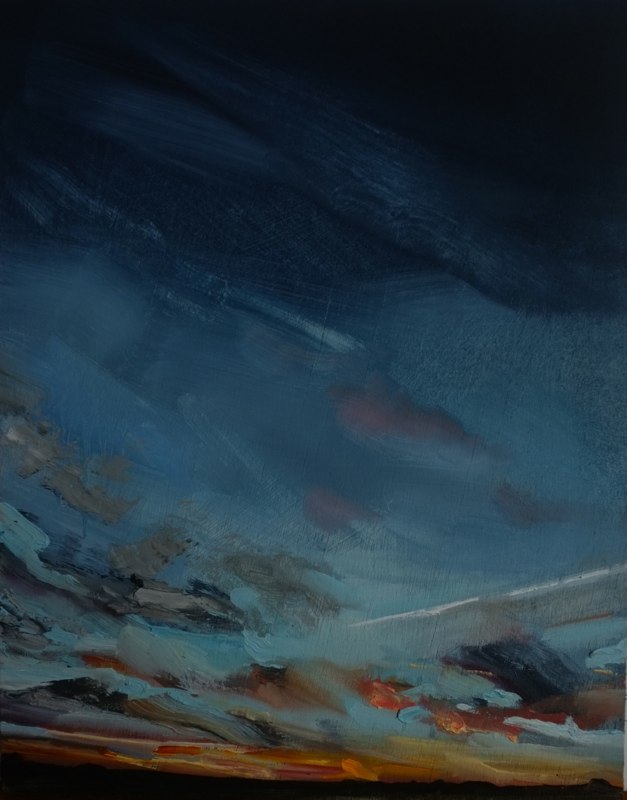
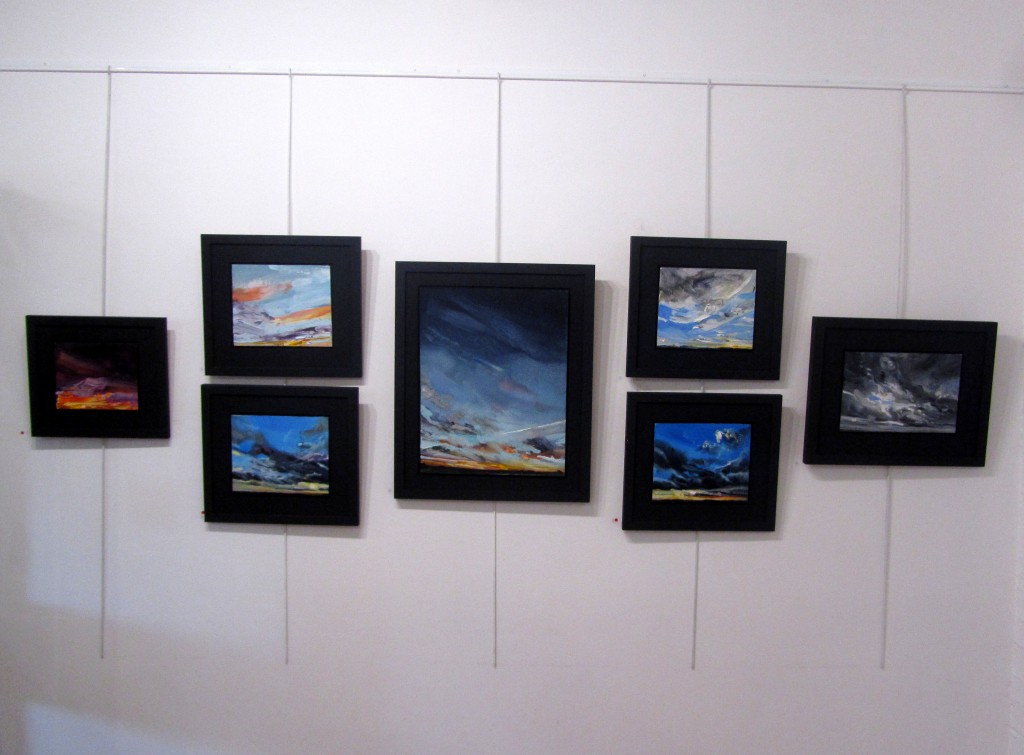
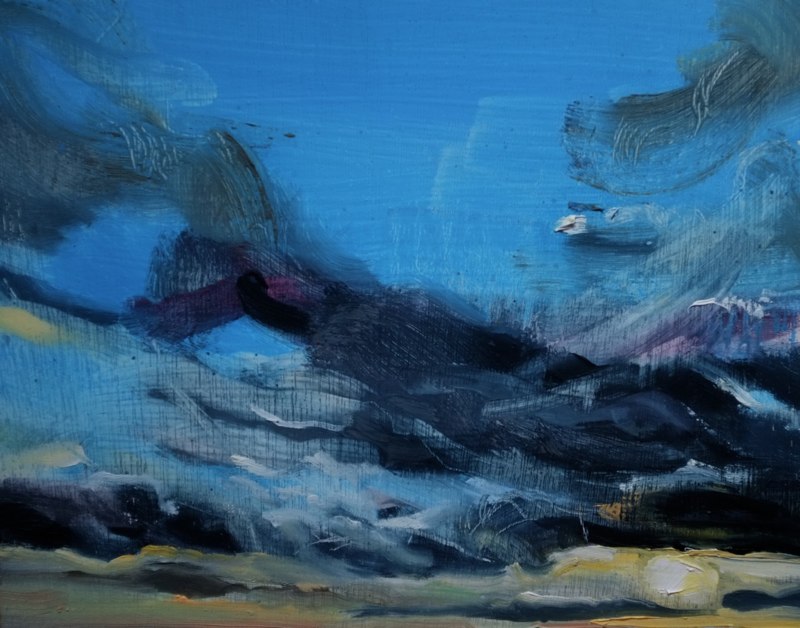
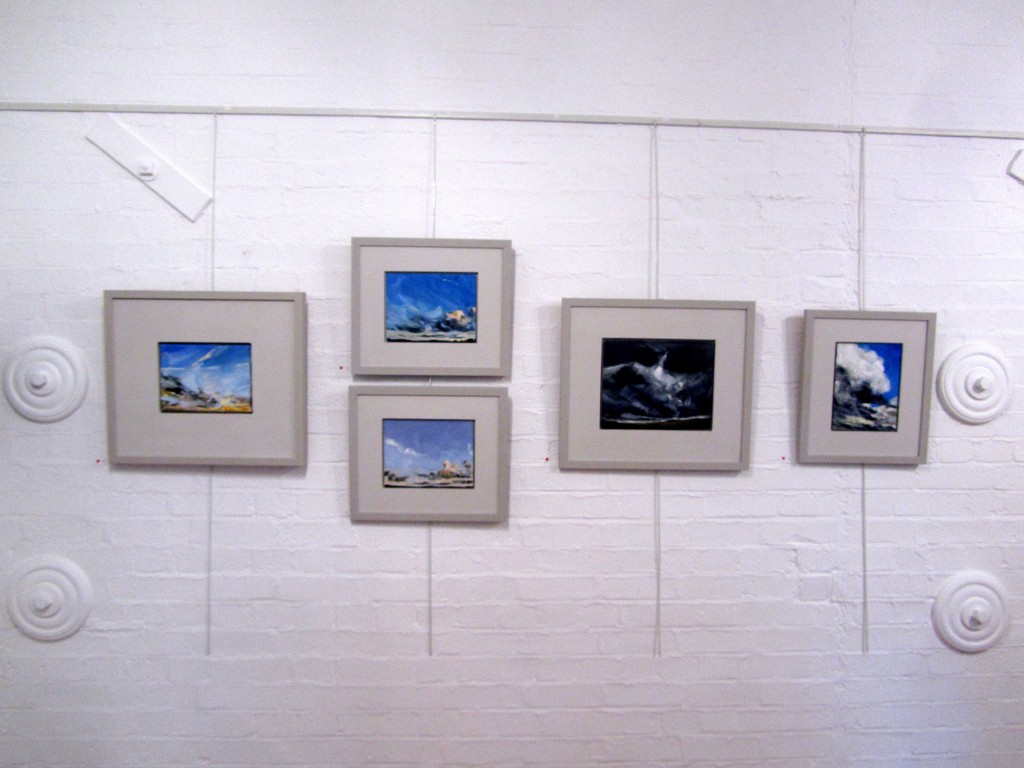
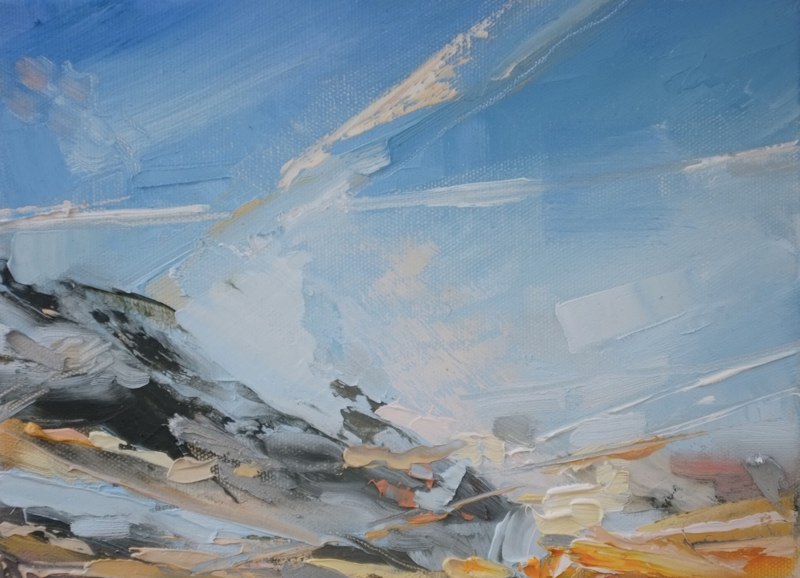
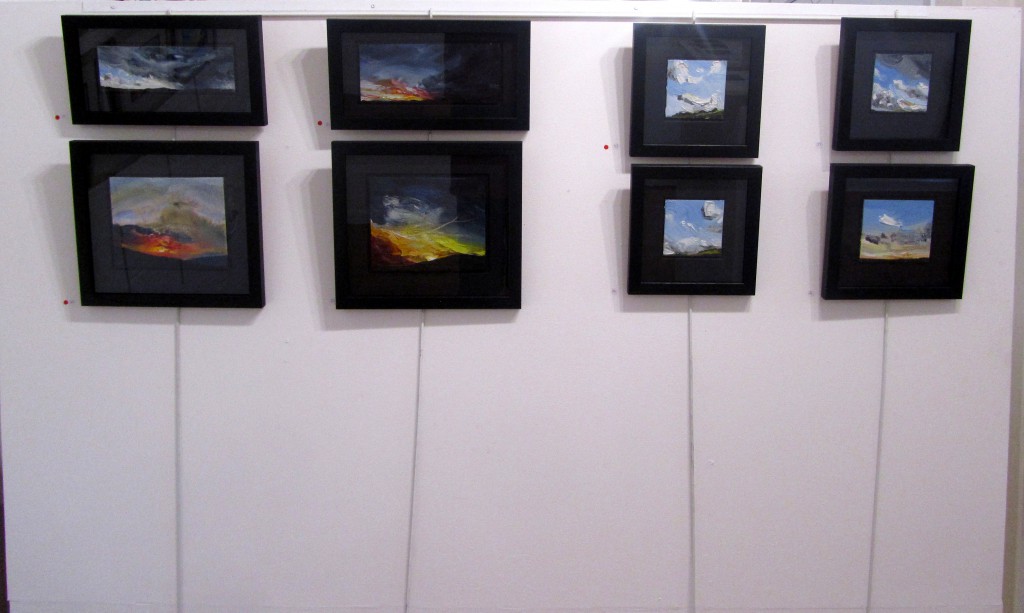
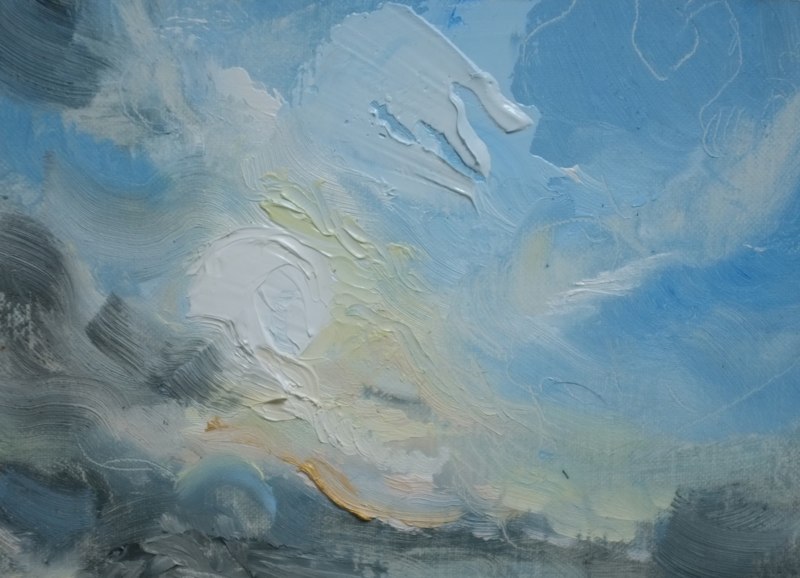
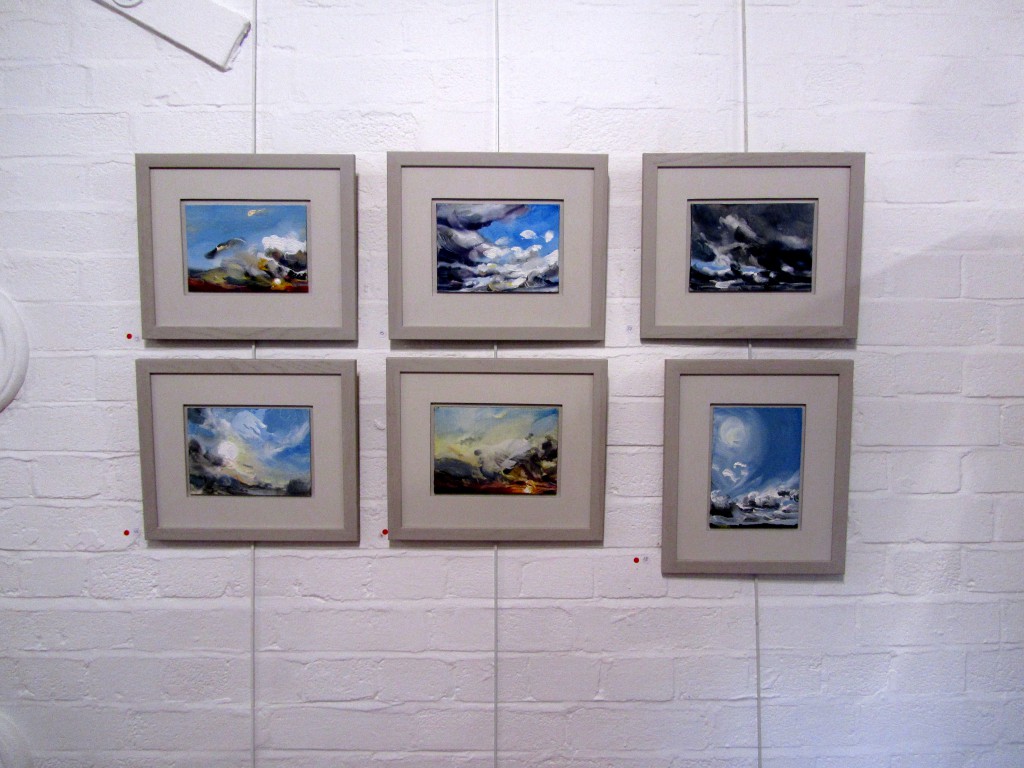
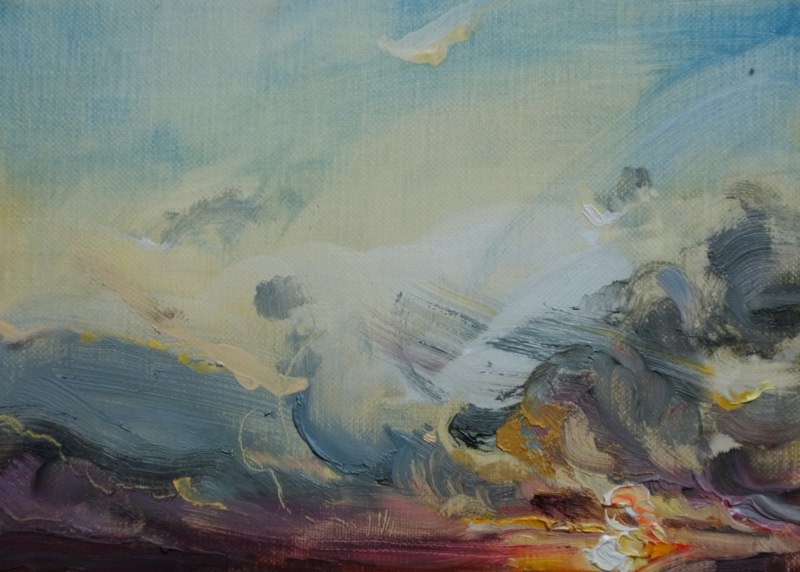
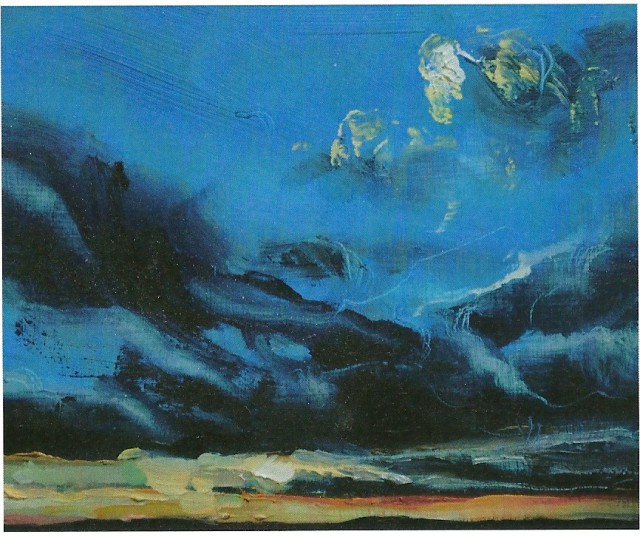
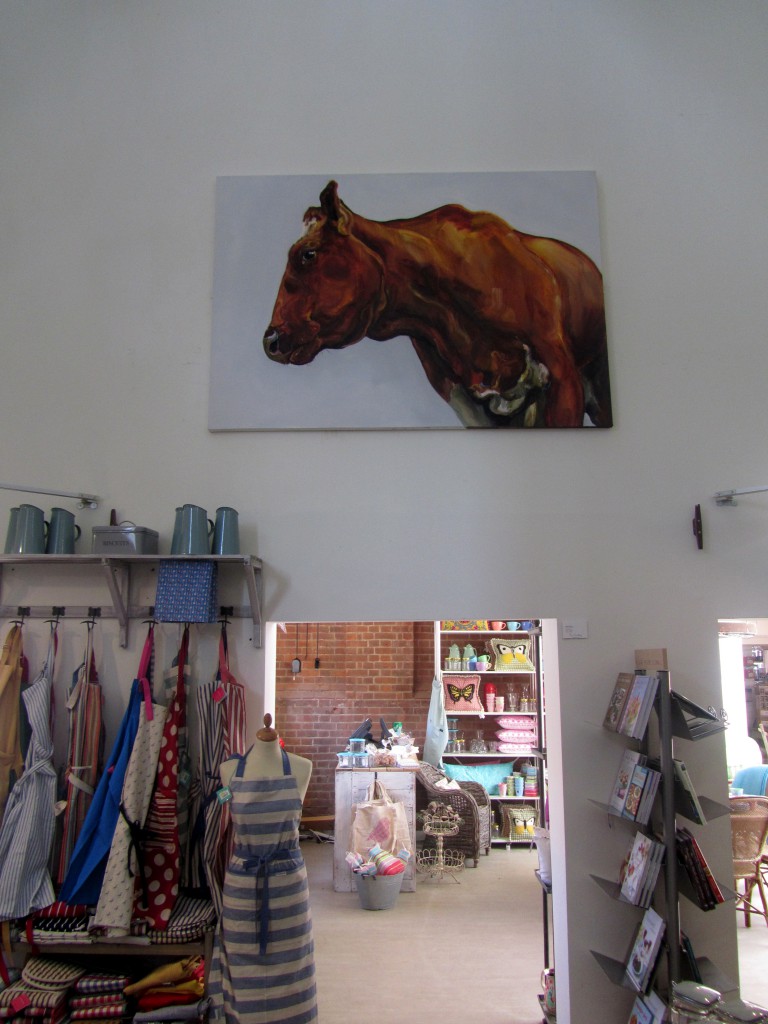
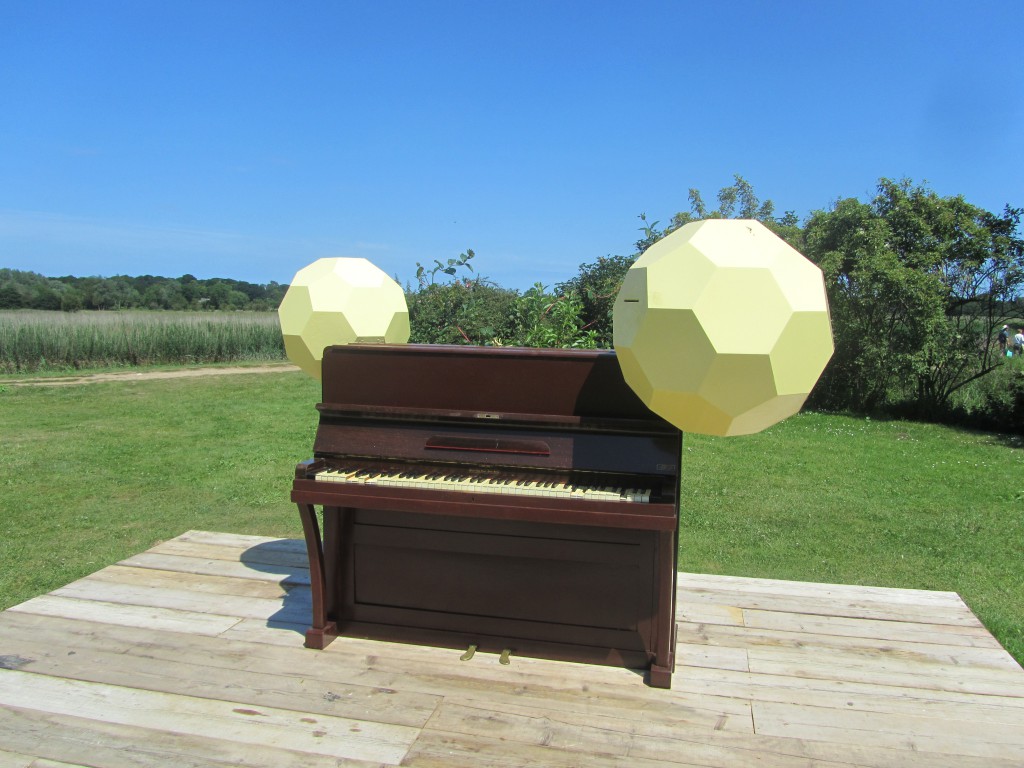
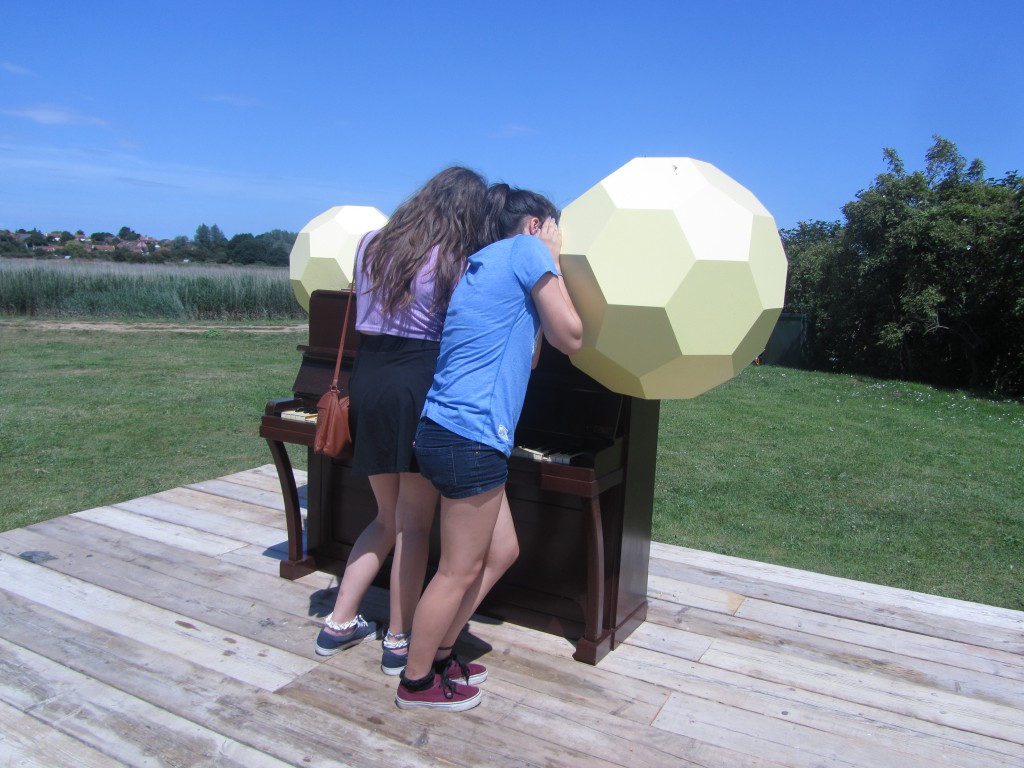
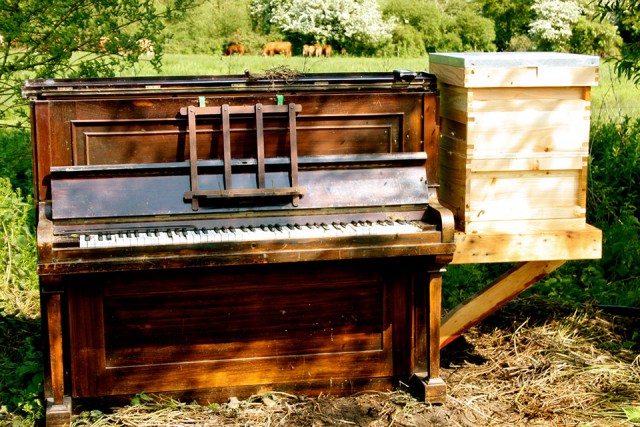
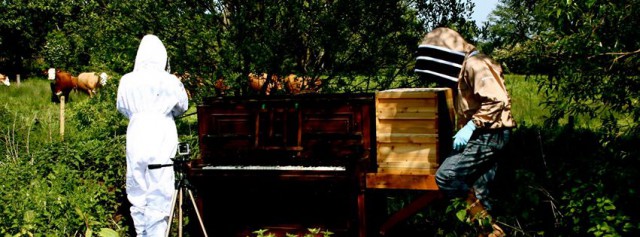
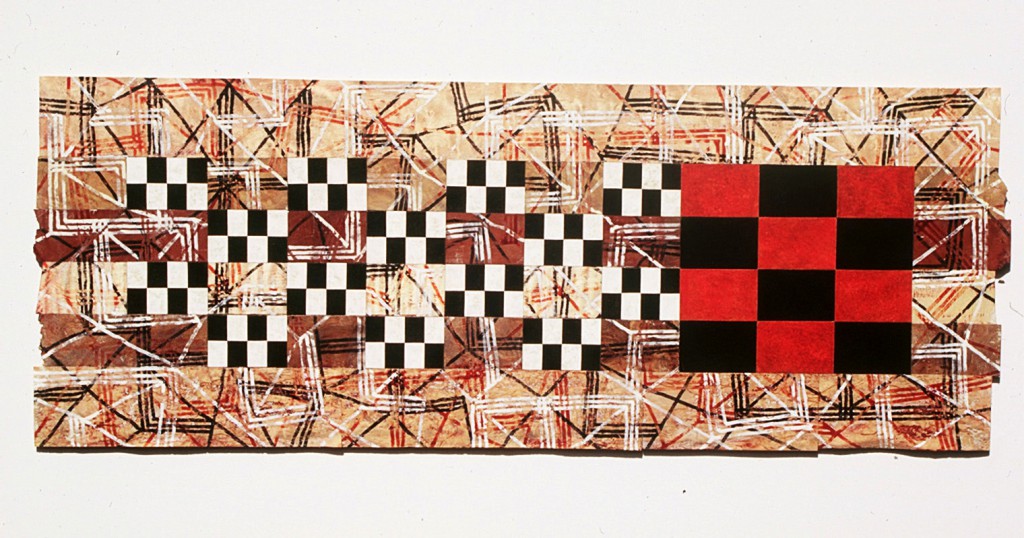
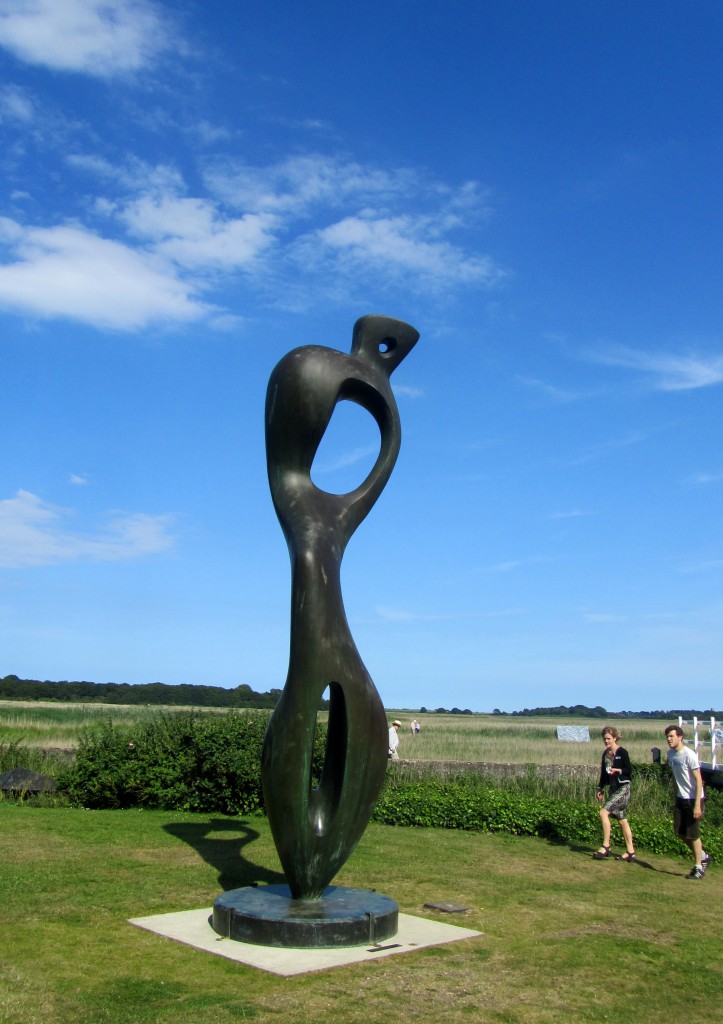
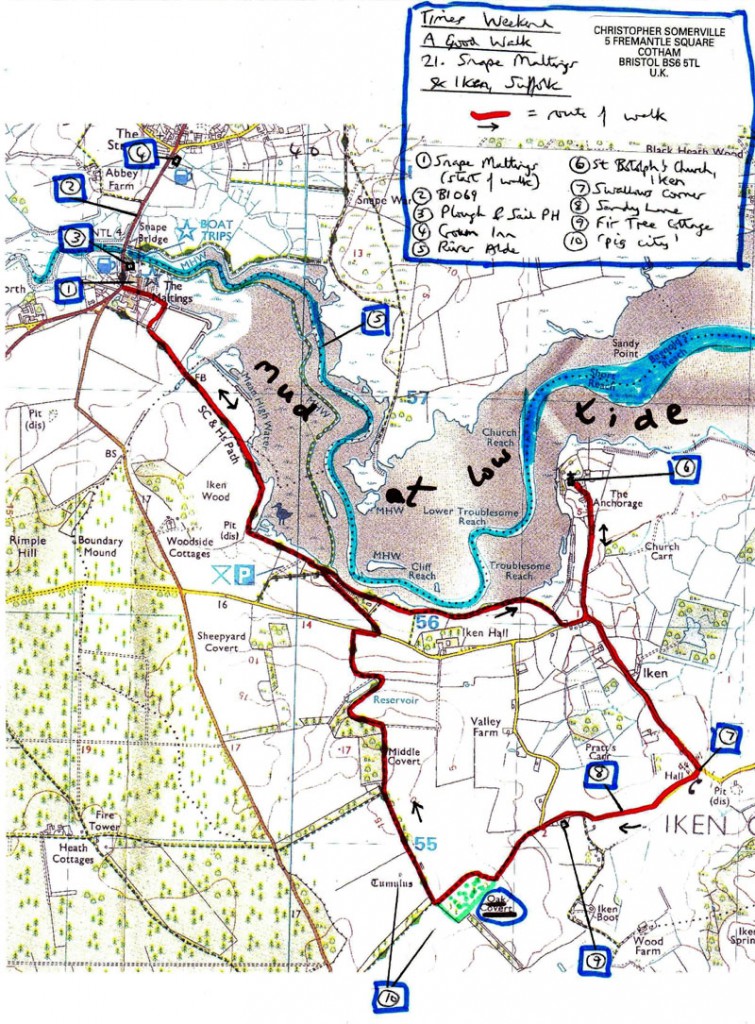
One thought on “The Sky At Snape”